359 papers:
 ECSA-2015-PahlJ #architecture #formal method #modelling #roadmap #towards
ECSA-2015-PahlJ #architecture #formal method #modelling #roadmap #towards- Software Architecture for the Cloud — A Roadmap Towards Control-Theoretic, Model-Based Cloud Architecture (CP, PJ), pp. 212–220.
 DAC-2015-KadjoAKG #approach #cpu #energy #gpu #mobile #performance
DAC-2015-KadjoAKG #approach #cpu #energy #gpu #mobile #performance- A control-theoretic approach for energy efficient CPU-GPU subsystem in mobile platforms (DK, RA, MK, PVG), p. 6.
 SIGMOD-2015-ArmenatzoglouPN #approach #clustering #game studies #graph #multi #realtime #social
SIGMOD-2015-ArmenatzoglouPN #approach #clustering #game studies #graph #multi #realtime #social- Real-Time Multi-Criteria Social Graph Partitioning: A Game Theoretic Approach (NA, HP, VN, DP, CS), pp. 1617–1628.
 ICALP-v1-2015-AgrawalIKP #complexity #encoding #perspective #random #statistics
ICALP-v1-2015-AgrawalIKP #complexity #encoding #perspective #random #statistics- Statistical Randomized Encodings: A Complexity Theoretic View (SA, YI, DK, APC), pp. 1–13.
 DUXU-DD-2015-RytilahtiMV #design
DUXU-DD-2015-RytilahtiMV #design- The Theoretical Landscape of Service Design (PR, SM, HRV), pp. 86–97.
 HCI-DE-2015-BoscarioliBSB #challenge #concept #education #how #human-computer #industrial
HCI-DE-2015-BoscarioliBSB #challenge #concept #education #how #human-computer #industrial- How to Join Theoretical Concepts, Industry Needs and Innovative Technologies in HCI Courses? The Big Challenge of Teaching HCI (CB, SAB, MSS, SDJB), pp. 27–36.
 ICML-2015-MaeharaYK #game studies #multi #perspective #problem
ICML-2015-MaeharaYK #game studies #multi #perspective #problem- Budget Allocation Problem with Multiple Advertisers: A Game Theoretic View (TM, AY, KiK), pp. 428–437.
 ICML-2015-PerrotH #analysis #learning #metric
ICML-2015-PerrotH #analysis #learning #metric- A Theoretical Analysis of Metric Hypothesis Transfer Learning (MP, AH), pp. 1708–1717.
 SIGIR-2015-Zhai #framework #game studies #information retrieval #towards
SIGIR-2015-Zhai #framework #game studies #information retrieval #towards- Towards a Game-Theoretic Framework for Information Retrieval (CZ), p. 543.
 POPL-2015-Castagna0XA #polymorphism #re-engineering #type inference
POPL-2015-Castagna0XA #polymorphism #re-engineering #type inference- Polymorphic Functions with Set-Theoretic Types: Part 2: Local Type Inference and Type Reconstruction (GC, KN, ZX, PA), pp. 289–302.
 SAC-2015-AissiGSS #evaluation #framework #personalisation #query #recommendation
SAC-2015-AissiGSS #evaluation #framework #personalisation #query #recommendation- Personalized recommendation of SOLAP queries: theoretical framework and experimental evaluation (SA, MSG, TS, LBS), pp. 1008–1014.
 CSL-2015-SchubertDB #automaton #proving
CSL-2015-SchubertDB #automaton #proving- Automata Theoretic Account of Proof Search (AS, WD, HPB), pp. 128–143.
 TLCA-2015-WangC #independence #type system
TLCA-2015-WangC #independence #type system- A Proof-theoretic Characterization of Independence in Type Theory (YW, KC), pp. 332–346.
 CASE-2014-HanZH #analysis
CASE-2014-HanZH #analysis- System-theoretic analysis of battery systems during equalization, charging, and discharging (WH, LZ, YH), pp. 158–163.
 ITiCSE-2014-Verwaal #learning
ITiCSE-2014-Verwaal #learning- Team based learning in theoretical computer science (NV), p. 331.
 ICALP-v1-2014-Jakobsen
ICALP-v1-2014-Jakobsen- Information Theoretical Cryptogenography (SKJ), pp. 676–688.
 IFM-2014-CalvaneseKSVZ #analysis #data type
IFM-2014-CalvaneseKSVZ #analysis #data type- Shape and Content — A Database-Theoretic Perspective on the Analysis of Data Structures (DC, TK, MS, HV, FZ), pp. 3–17.
 DUXU-TMT-2014-Lamontagne #paradigm #performance #smarttech
DUXU-TMT-2014-Lamontagne #paradigm #performance #smarttech- Techno-Theoretical Paradigm: Performance, Fashion and Wearables (VL), pp. 153–162.
 HCI-TMT-2014-Bakke #approach #process #user interface
HCI-TMT-2014-Bakke #approach #process #user interface- Immediacy in User Interfaces: An Activity Theoretical Approach (SB), pp. 14–22.
 HCI-TMT-2014-PhotiadisZ #3d #design #experience #user interface #visualisation
HCI-TMT-2014-PhotiadisZ #3d #design #experience #user interface #visualisation- The Formulation and Visualization of 3D Avatar Design, Including Three Basic Theoretical Elements: Aesthetic, User Experience and Psychology (TP, PZ), pp. 134–144.
 ICML-c1-2014-SomaKIK #algorithm #performance
ICML-c1-2014-SomaKIK #algorithm #performance- Optimal Budget Allocation: Theoretical Guarantee and Efficient Algorithm (TS, NK, KI, KiK), pp. 351–359.
 ICML-c1-2014-SteegGSD #clustering
ICML-c1-2014-SteegGSD #clustering- Demystifying Information-Theoretic Clustering (GVS, AG, FS, SD), pp. 19–27.
 ICML-c2-2014-WangRRCC #design #metric
ICML-c2-2014-WangRRCC #design #metric- Nonlinear Information-Theoretic Compressive Measurement Design (LW, AR, MRDR, ARC, LC), pp. 1161–1169.
 ICPR-2014-BlomerBK #algorithm #comparison
ICPR-2014-BlomerBK #algorithm #comparison- A Theoretical and Experimental Comparison of the EM and SEM Algorithm (JB, KB, DK), pp. 1419–1424.
 ICPR-2014-QureshiHA #probability #using
ICPR-2014-QureshiHA #probability #using- A Probabilistic Model for the Optimal Configuration of Retinal Junctions Using Theoretically Proven Features (TAQ, AH, BAD), pp. 3304–3309.
 KDIR-2014-Nguyen0 #distance #edit distance #similarity
KDIR-2014-Nguyen0 #distance #edit distance #similarity- Applying Information-theoretic and Edit Distance Approaches to Flexibly Measure Lexical Similarity (TTAN, SC), pp. 505–511.
 KEOD-2014-SurynekS #big data #challenge #graph #information management #logic #perspective #reasoning
KEOD-2014-SurynekS #big data #challenge #graph #information management #logic #perspective #reasoning- Theoretical Challenges in Knowledge Discovery in Big Data — A Logic Reasoning and a Graph Theoretical Point of View (PS, PS), pp. 327–332.
 Onward-2014-Conversy #programming language #visual notation
Onward-2014-Conversy #programming language #visual notation- Unifying Textual and Visual: A Theoretical Account of the Visual Perception of Programming Languages (SC), pp. 201–212.
 PPDP-2014-AsaiFTZ #partial evaluation #specification
PPDP-2014-AsaiFTZ #partial evaluation #specification- A Type Theoretic Specification of Partial Evaluation (KA, LF, PT, YZ), pp. 57–68.
 POPL-2014-Castagna0XILP #evaluation #polymorphism #semantics #syntax
POPL-2014-Castagna0XILP #evaluation #polymorphism #semantics #syntax- Polymorphic functions with set-theoretic types: part 1: syntax, semantics, and evaluation (GC, KN, ZX, HI, SL, LP), pp. 5–18.
 SAC-2014-EliasMFB #algorithm #analysis #memory management
SAC-2014-EliasMFB #algorithm #analysis #memory management- Experimental and theoretical analyses of memory allocation algorithms (DE, RM, MF, LBdA), pp. 1545–1546.
 ICSE-2014-FilieriHM #adaptation #automation #design #self
ICSE-2014-FilieriHM #adaptation #automation #design #self- Automated design of self-adaptive software with control-theoretical formal guarantees (AF, HH, MM), pp. 299–310.
 PPoPP-2014-MaAC #algorithm #analysis #manycore #thread
PPoPP-2014-MaAC #algorithm #analysis #manycore #thread- Theoretical analysis of classic algorithms on highly-threaded many-core GPUs (LM, KA, RDC), pp. 391–392.
 ICLP-J-2014-PimentelON #concurrent #constraints #programming #proving
ICLP-J-2014-PimentelON #concurrent #constraints #programming #proving- A Proof Theoretic Study of Soft Concurrent Constraint Programming (EP, CO, VN), pp. 649–663.
 ICST-2014-AmmannDO #set
ICST-2014-AmmannDO #set- Establishing Theoretical Minimal Sets of Mutants (PA, MED, JO), pp. 21–30.
 LICS-CSL-2014-BilokonE #approach #probability #process
LICS-CSL-2014-BilokonE #approach #probability #process- A domain-theoretic approach to Brownian motion and general continuous stochastic processes (PB, AE), p. 10.
 ASE-2013-Garcia-GalanTC #approach #game studies #multi #variability
ASE-2013-Garcia-GalanTC #approach #game studies #multi #variability- Multi-user variability configuration: A game theoretic approach (JGG, PT, ARC), pp. 574–579.
 CASE-2013-AravamudhanML #estimation
CASE-2013-AravamudhanML #estimation- “Network-theoretic” queuing delay estimation in theme park attractions (ASA, AM, HCL), pp. 776–782.
 DATE-2013-WildermannZT #analysis #distributed #game studies #manycore
DATE-2013-WildermannZT #analysis #distributed #game studies #manycore- Game-theoretic analysis of decentralized core allocation schemes on many-core systems (SW, TZ, JT), pp. 1498–1503.
 ITiCSE-2013-RodgerGML
ITiCSE-2013-RodgerGML- Increasing the experimentation of theoretical computer science with new features in JFLAP (SHR, JG, IM, PL), p. 351.
 CHI-2013-HeklerKFB #behaviour #human-computer #research #using
CHI-2013-HeklerKFB #behaviour #human-computer #research #using- Mind the theoretical gap: interpreting, using, and developing behavioral theory in HCI research (EBH, PVK, JF, MPB), pp. 3307–3316.
 CSCW-2013-Waterhouse #metric
CSCW-2013-Waterhouse #metric- Pay by the bit: an information-theoretic metric for collective human judgment (TPW), pp. 623–638.
 DHM-SET-2013-Fass #biology #design #human-computer #modelling
DHM-SET-2013-Fass #biology #design #human-computer #modelling- Putting in Perspective Human-Machine System Theory and Modeling: From Theoretical Biology to Artifacts Integrative Design and Organization — “Artem Augmented Human Project” (DF), pp. 316–325.
 ICEIS-v1-2013-Santibanez-GonzalezM #network #novel
ICEIS-v1-2013-Santibanez-GonzalezM #network #novel- A Novel Mathematical Formulation for the Strategic Planning of a Reverse Supply Chain Network — Theoretical and Computational Results (EDRSG, NM), pp. 570–577.
 CIKM-2013-Eklund #challenge #game studies #lessons learnt #mobile #on the #perspective
CIKM-2013-Eklund #challenge #game studies #lessons learnt #mobile #on the #perspective- On challenges with mobile e-health: lessons from a game-theoretic perspective (AME), pp. 1249–1252.
 ICML-c3-2013-NiuJDHS #approach #learning #novel
ICML-c3-2013-NiuJDHS #approach #learning #novel- Squared-loss Mutual Information Regularization: A Novel Information-theoretic Approach to Semi-supervised Learning (GN, WJ, BD, HH, MS), pp. 10–18.
 KDIR-KMIS-2013-KolerovaOB #case study #clustering #industrial
KDIR-KMIS-2013-KolerovaOB #case study #clustering #industrial- Information and Knowledge Sharing in Industrial Clusters — Theoretical Background and a Case Study (KK, TO, VB), pp. 457–463.
 SIGIR-2013-ChenL
SIGIR-2013-ChenL- An information-theoretic account of static index pruning (RCC, CJL), pp. 163–172.
 ICSE-2013-Kukreja #approach #requirements #towards
ICSE-2013-Kukreja #approach #requirements #towards- Decision theoretic requirements prioritization: a two-step approach for sliding towards value realization (NK), pp. 1465–1467.
 CASE-2012-ChenZAB #analysis #approach #performance #realtime
CASE-2012-ChenZAB #analysis #approach #performance #realtime- Real-time performance analysis of production lines: A system-theoretic approach (GC, LZ, JA, SB), pp. 656–661.
 CASE-2012-Markovski #framework
CASE-2012-Markovski #framework- A process-theoretic state-based framework for live supervision (JM), pp. 680–685.
 DAC-2012-ParkKCDCP #prototype
DAC-2012-ParkKCDCP #prototype- Approaching the theoretical limits of a mesh NoC with a 16-node chip prototype in 45nm SOI (SP, TK, CHOC, BKD, AC, LSP), pp. 398–405.
 DAC-2012-ZhouLCKQY #framework #monitoring
DAC-2012-ZhouLCKQY #framework #monitoring- An information-theoretic framework for optimal temperature sensor allocation and full-chip thermal monitoring (HZ, XL, CYC, EK, HQ, SCY), pp. 642–647.
 FASE-2012-LongCMM #abstraction #refinement
FASE-2012-LongCMM #abstraction #refinement- Language-Theoretic Abstraction Refinement (ZL, GC, RM, RM), pp. 362–376.
 ICALP-v2-2012-ReddyD #algol #formal method
ICALP-v2-2012-ReddyD #algol #formal method- An Automata-Theoretic Model of Idealized Algol — (Extended Abstract) (USR, BPD), pp. 337–350.
 CSCW-2012-StuartDKKK #framework #social
CSCW-2012-StuartDKKK #framework #social- Social transparency in networked information exchange: a theoretical framework (HCS, LAD, SBK, PK, RK), pp. 451–460.
 ECIR-2012-CumminsO #information retrieval #on the
ECIR-2012-CumminsO #information retrieval #on the- On Theoretically Valid Score Distributions in Information Retrieval (RC, CO), pp. 451–454.
 ICML-2012-ChenLL #algorithm #online
ICML-2012-ChenLL #algorithm #online- An Online Boosting Algorithm with Theoretical Justifications (STC, HTL, CJL), p. 243.
 ICML-2012-NiuDYS #learning #metric
ICML-2012-NiuDYS #learning #metric- Information-theoretic Semi-supervised Metric Learning via Entropy Regularization (GN, BD, MY, MS), p. 136.
 ICML-2012-ShiS #adaptation #clustering #learning
ICML-2012-ShiS #adaptation #clustering #learning- Information-Theoretical Learning of Discriminative Clusters for Unsupervised Domain Adaptation (YS, FS), p. 166.
 ICPR-2012-Nielsen #statistics
ICPR-2012-Nielsen #statistics- Closed-form information-theoretic divergences for statistical mixtures (FN), pp. 1723–1726.
 ICPR-2012-PangHYQW #analysis #classification #learning
ICPR-2012-PangHYQW #analysis #classification #learning- Theoretical analysis of learning local anchors for classification (JP, QH, BY, LQ, DW), pp. 1803–1806.
 KDIR-2012-SorkhiAHH #framework #game studies #identification #network #social
KDIR-2012-SorkhiAHH #framework #game studies #identification #network #social- A Game-Theoretic Framework to Identify Top-K Teams in Social Networks (MS, HA, SH, AH), pp. 252–257.
 KMIS-2012-WangK #development #framework #on the
KMIS-2012-WangK #development #framework #on the- On the Development of a Theoretical Framework for New Product Development (LW, AK), pp. 49–59.
 KR-2012-LutzSW #approach #approximate #logic
KR-2012-LutzSW #approach #approximate #logic- An Automata-Theoretic Approach to Uniform Interpolation and Approximation in the Description Logic EL (CL, IS, FW).
 SIGIR-2012-BerardiES #automation #classification #ranking
SIGIR-2012-BerardiES #automation #classification #ranking- A utility-theoretic ranking method for semi-automated text classification (GB, AE, FS), pp. 961–970.
 ICMT-2012-TerwilligerCC #bidirectional #framework #how #incremental #towards
ICMT-2012-TerwilligerCC #bidirectional #framework #how #incremental #towards- How Clean Is Your Sandbox? — Towards a Unified Theoretical Framework for Incremental Bidirectional Transformations (JFT, AC, CC), pp. 1–23.
 CSL-2012-CarraroS #consistency #equation #formal method #modelling #on the #λ-calculus
CSL-2012-CarraroS #consistency #equation #formal method #modelling #on the #λ-calculus- On the equational consistency of order-theoretic models of the λ-calculus (AC, AS), pp. 152–166.
 ICLP-J-2012-Cervesato #compilation #logic programming #source code
ICLP-J-2012-Cervesato #compilation #logic programming #source code- An Improved Proof-Theoretic Compilation of Logic Programs (IC), pp. 639–657.
 DAC-2011-Jandhyala #automation #design #network #social #tool support #web
DAC-2011-Jandhyala #automation #design #network #social #tool support #web- Physics-based field-theoretic design automation tools for social networks and web search (VJ), pp. 280–281.
 DATE-2011-BeltrameN #algorithm #design #multi
DATE-2011-BeltrameN #algorithm #design #multi- A multi-objective decision-theoretic exploration algorithm for platform-based design (GB, GN), pp. 1192–1195.
 DATE-2011-RoyRM #algorithm #modelling #performance
DATE-2011-RoyRM #algorithm #modelling #performance- Theoretical modeling of the Itoh-Tsujii Inversion algorithm for enhanced performance on k-LUT based FPGAs (SSR, CR, DM), pp. 1231–1236.
 FASE-2011-VanoverbergheP #aspect-oriented #composition #execution #symbolic computation
FASE-2011-VanoverbergheP #aspect-oriented #composition #execution #symbolic computation- Theoretical Aspects of Compositional Symbolic Execution (DV, FP), pp. 247–261.
 AFL-2011-LoeligerN #design #graph #user interface
AFL-2011-LoeligerN #design #graph #user interface- Affordance Graphs for User Interface Design: Application of Category-theoretic Constructs (EAL, CLN), pp. 392–394.
 ICFP-2011-CastagnaX #morphism #parametricity #polymorphism #type system
ICFP-2011-CastagnaX #morphism #parametricity #polymorphism #type system- Set-theoretic foundation of parametric polymorphism and subtyping (GC, ZX), pp. 94–106.
 CHI-2011-BekkerA #design
CHI-2011-BekkerA #design- Developmentally situated design (DSD): making theoretical knowledge accessible to designers of children’s technology (TB, ANA), pp. 2531–2540.
 CAiSE-2011-TranM #evolution #game studies #requirements #towards
CAiSE-2011-TranM #evolution #game studies #requirements #towards- Dealing with Known Unknowns: Towards a Game-Theoretic Foundation for Software Requirement Evolution (LMST, FM), pp. 62–76.
 KDD-2011-AlqadahB #clustering #framework #game studies #network
KDD-2011-AlqadahB #clustering #framework #game studies #network- A game theoretic framework for heterogenous information network clustering (FA, RB), pp. 795–804.
 KDD-2011-Bie #data mining #framework #mining
KDD-2011-Bie #data mining #framework #mining- An information theoretic framework for data mining (TDB), pp. 564–572.
 SAC-2011-SantosaMK #approach #named #programming #search-based
SAC-2011-SantosaMK #approach #named #programming #search-based- HMXT-GP: an information-theoretic approach to genetic programming that maintains diversity (HS, JM, PJK), pp. 1070–1075.
 CSL-2011-Schwencke #nondeterminism #recursion
CSL-2011-Schwencke #nondeterminism #recursion- A Category Theoretic View of Nondeterministic Recursive Program Schemes (DS), pp. 496–511.
 TLCA-2011-ArndtK #formal method #modelling #type system
TLCA-2011-ArndtK #formal method #modelling #type system- Homotopy-Theoretic Models of Type Theory (PA, KK), pp. 45–60.
 DAC-2010-ObergHITSK #analysis #data flow
DAC-2010-ObergHITSK #analysis #data flow- Theoretical analysis of gate level information flow tracking (JO, WH, AI, MT, TS, RK), pp. 244–247.
 DAC-2010-ZhangLH #analysis
DAC-2010-ZhangLH #analysis- Separatrices in high-dimensional state space: system-theoretical tangent computation and application to SRAM dynamic stability analysis (YZ, PL, GMH), pp. 567–572.
 FASE-2010-LiXBLM #approach #hardware
FASE-2010-LiXBLM #approach #hardware- An Automata-Theoretic Approach to Hardware/Software Co-verification (JL, FX, TB, VL, CM), pp. 248–262.
 DLT-2010-Kari
DLT-2010-Kari- DNA Computing and Its Implications for Theoretical Computer Science (LK), p. 32.
 IFL-2010-TorontoM #probability
IFL-2010-TorontoM #probability- From Bayesian Notation to Pure Racket via Discrete Measure-Theoretic Probability in λ ZFC (NT, JM), pp. 89–104.
 ICML-2010-BoureauPL #analysis #recognition #visual notation
ICML-2010-BoureauPL #analysis #recognition #visual notation- A Theoretical Analysis of Feature Pooling in Visual Recognition (YLB, JP, YL), pp. 111–118.
 ICML-2010-FaivishevskyG #algorithm #clustering #parametricity
ICML-2010-FaivishevskyG #algorithm #clustering #parametricity- Nonparametric Information Theoretic Clustering Algorithm (LF, JG), pp. 351–358.
 ICPR-2010-AlbarelliRCT #approach #game studies #robust
ICPR-2010-AlbarelliRCT #approach #game studies #robust- Robust Figure Extraction on Textured Background: A Game-Theoretic Approach (AA, ER, AC, AT), pp. 360–363.
 ICPR-2010-BauckhageT #adaptation #clustering #image
ICPR-2010-BauckhageT #adaptation #clustering #image- Adapting Information Theoretic Clustering to Binary Images (CB, CT), pp. 910–913.
 ICPR-2010-BicegoMMAF #2d #kernel #recognition #using
ICPR-2010-BicegoMMAF #2d #kernel #recognition #using- 2D Shape Recognition Using Information Theoretic Kernels (MB, AFTM, VM, PMQA, MATF), pp. 25–28.
 ICPR-2010-BonevEGB #feature model #graph
ICPR-2010-BonevEGB #feature model #graph- Information-theoretic Feature Selection from Unattributed Graphs (BB, FE, DG, SB), pp. 930–933.
 ICPR-2010-GarciaMS #analysis #performance
ICPR-2010-GarciaMS #analysis #performance- Theoretical Analysis of a Performance Measure for Imbalanced Data (VG, RAM, JSS), pp. 617–620.
 ICPR-2010-MemonLM #modelling #verification
ICPR-2010-MemonLM #modelling #verification- Information Theoretic Expectation Maximization Based Gaussian Mixture Modeling for Speaker Verification (SM, ML, NCM), pp. 4536–4540.
 ICPR-2010-NegiK
ICPR-2010-NegiK- SubXPCA versus PCA: A Theoretical Investigation (AN, VKK), pp. 4170–4173.
 ICPR-2010-RodolaAT #approach #game studies #multi #robust
ICPR-2010-RodolaAT #approach #game studies #multi #robust- A Game-Theoretic Approach to Robust Selection of Multi-view Point Correspondence (ER, AA, AT), pp. 57–60.
 ICPR-2010-ZhangGA #analysis #linear
ICPR-2010-ZhangGA #analysis #linear- An Information Theoretic Linear Discriminant Analysis Method (HZ, CG, KKA), pp. 4182–4185.
 KDD-2010-DangB #clustering #linear
KDD-2010-DangB #clustering #linear- A hierarchical information theoretic technique for the discovery of non linear alternative clusterings (XHD, JB), pp. 573–582.
 SEKE-2010-LinsteadHLB #metric
SEKE-2010-LinsteadHLB #metric- Information-Theoretic Metrics for Project-Level Scattering and Tangling (EL, LH, CVL, PB), pp. 141–146.
 SAC-2010-KimY #multi #personalisation #recommendation
SAC-2010-KimY #multi #personalisation #recommendation- New theoretical findings in multiple personalized recommendations (YHK, YY), pp. 94–98.
 ISMM-2010-BegB #approach #graph
ISMM-2010-BegB #approach #graph- A graph theoretic approach to cache-conscious placement of data for direct mapped caches (MB, PvB), pp. 113–120.
 FASE-2009-RutleRLW #approach #formal method #version control
FASE-2009-RutleRLW #approach #formal method #version control- A Category-Theoretical Approach to the Formalisation of Version Control in MDE (AR, AR, YL, UW), pp. 64–78.
 ICSM-2009-AndroutsopoulosGHLT #dependence #empirical
ICSM-2009-AndroutsopoulosGHLT #dependence #empirical- A theoretical and empirical study of EFSM dependence (KA, NG, MH, ZL, LT), pp. 287–296.
 DLT-2009-KountouriotisNR #boolean grammar #game studies
DLT-2009-KountouriotisNR #boolean grammar #game studies- A Game-Theoretic Characterization of Boolean Grammars (VK, CN, PR), pp. 334–347.
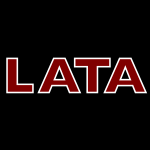 LATA-2009-Courcelle #algorithm #graph #higher-order #logic #monad
LATA-2009-Courcelle #algorithm #graph #higher-order #logic #monad- Monadic Second-Order Logic for Graphs: Algorithmic and Language Theoretical Applications (BC), pp. 19–22.
 HCD-2009-HsiehHY #design #web
HCD-2009-HsiehHY #design #web- A Theoretical Model for Cross-Cultural Web Design (HCH, RH, MY), pp. 712–721.
 ICML-2009-NguyenEB #clustering #comparison #metric #question
ICML-2009-NguyenEB #clustering #comparison #metric #question- Information theoretic measures for clusterings comparison: is a correction for chance necessary? (XVN, JE, JB), pp. 1073–1080.
 ICML-2009-YuanH #feature model #learning #robust
ICML-2009-YuanH #feature model #learning #robust- Robust feature extraction via information theoretic learning (XY, BGH), pp. 1193–1200.
 KDD-2009-AndoS #clustering #detection
KDD-2009-AndoS #clustering #detection- Detection of unique temporal segments by information theoretic meta-clustering (SA, ES), pp. 59–68.
 KDD-2009-ZhengWLL
KDD-2009-ZhengWLL- Information theoretic regularization for semi-supervised boosting (LZ, SW, YL, CHL), pp. 1017–1026.
 KEOD-2009-AbrusciRF #framework #information management #integration #representation
KEOD-2009-AbrusciRF #framework #information management #integration #representation- Knowledge Representation through Coherence Spaces — A Theoretical Framework for the Integration of Knowledge Representations (VMA, MR, CF), pp. 220–225.
 ECMDA-FA-2009-ChenM #consistency #guidelines #uml
ECMDA-FA-2009-ChenM #consistency #guidelines #uml- A Language-Theoretic View on Guidelines and Consistency Rules of UML (ZC, GM), pp. 66–81.
 ICMT-2009-Stevens #approach #game studies #qvt
ICMT-2009-Stevens #approach #game studies #qvt- A Simple Game-Theoretic Approach to Checkonly QVT Relations (PS), pp. 165–180.
 SAC-2009-SinghB #identification #multi #web
SAC-2009-SinghB #identification #multi #web- Information-theoretic identification of content pages for analyzing user information needs and actions on the multimedia web (RS, BDB), pp. 1806–1810.
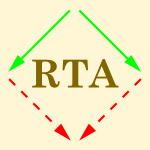 RTA-2009-TiuG #analysis #proving
RTA-2009-TiuG #analysis #proving- A Proof Theoretic Analysis of Intruder Theories (AT, RG), pp. 103–117.
 SAT-2009-Skvortsov #analysis
SAT-2009-Skvortsov #analysis- A Theoretical Analysis of Search in GSAT (ESS), pp. 265–275.
 VMCAI-2009-Oshman #bound #model checking
VMCAI-2009-Oshman #bound #model checking- An Automata-Theoretic Dynamic Completeness Criterion for Bounded Model-Checking (RO), pp. 275–289.
 DATE-2008-DavidLLN #approach #game studies #realtime #testing
DATE-2008-DavidLLN #approach #game studies #realtime #testing- A Game-Theoretic Approach to Real-Time System Testing (AD, KGL, SL, BN), pp. 486–491.
 DATE-2008-StrakaMBK #aspect-oriented #metric #quality
DATE-2008-StrakaMBK #aspect-oriented #metric #quality- Theoretical and Practical Aspects of IDDQ Settling-Impact on Measurement Timing and Quality (BS, HARM, JB, SK), pp. 1310–1315.
 ITiCSE-2008-SchluterB #education
ITiCSE-2008-SchluterB #education- Characteristics and dimensions of a competence model of theoretical computer science in secondary education (KS, TB), p. 367.
 CIAA-2008-DixonES #analysis
CIAA-2008-DixonES #analysis- Automata-Theoretic Analysis of Bit-Split Languages for Packet Scanning (RD, ÖE, TS), pp. 141–150.
 ICALP-A-2008-Courcelle #aspect-oriented #graph #higher-order #logic #monad
ICALP-A-2008-Courcelle #aspect-oriented #graph #higher-order #logic #monad- Graph Structure and Monadic Second-Order Logic: Language Theoretical Aspects (BC), pp. 1–13.
 ICALP-B-2008-Martin #formal method #quantum
ICALP-B-2008-Martin #formal method #quantum- A Domain Theoretic Model of Qubit Channels (KM), pp. 283–297.
 CAiSE-2008-MuehlenR #how #modelling #process
CAiSE-2008-MuehlenR #how #modelling #process- How Much Language Is Enough? Theoretical and Practical Use of the Business Process Modeling Notation (MzM, JR), pp. 465–479.
 ICEIS-HCI-2008-BaddooBHRS
ICEIS-HCI-2008-BaddooBHRS- Motivating Software Engineers — A Theoretically Reflective Model (NB, SB, TH, HR, HS), pp. 174–180.
 KDD-2008-WuXC #clustering #incremental #learning #named
KDD-2008-WuXC #clustering #incremental #learning #named- SAIL: summation-based incremental learning for information-theoretic clustering (JW, HX, JC), pp. 740–748.
 KR-2008-HahmannG #ontology
KR-2008-HahmannG #ontology- Model-Theoretic Characterization of Asher and Vieu’s Ontology of Mereotopology (TH, MG), pp. 263–273.
 SEKE-2008-Condori-FernandezP #metric #modelling #towards
SEKE-2008-Condori-FernandezP #metric #modelling #towards- Towards a Theoretical Model for Evaluating the Acceptance of Model-driven Measurement Procedures (NCF, OP), pp. 22–25.
 SIGIR-2008-Diaz08b #bound #empirical #metric #robust #similarity
SIGIR-2008-Diaz08b #bound #empirical #metric #robust #similarity- Theoretical bounds on and empirical robustness of score regularization to different similarity measures (FDD), pp. 809–810.
 POPL-2008-Pientka #higher-order #programming #syntax
POPL-2008-Pientka #higher-order #programming #syntax- A type-theoretic foundation for programming with higher-order abstract syntax and first-class substitutions (BP), pp. 371–382.
 SAC-2008-AndresAN #experience #formal method #information management #using
SAC-2008-AndresAN #experience #formal method #information management #using- Using formal methods to develop a complex information system: a practical/theoretical experience (CA, RGA, MN), pp. 848–849.
 SAC-2008-RamanathanKGJ #framework #graph #named #testing
SAC-2008-RamanathanKGJ #framework #graph #named #testing- PHALANX: a graph-theoretic framework for test case prioritization (MKR, MK, AG, SJ), pp. 667–673.
 ITiCSE-2007-KorteAPG #approach #education #learning #novel
ITiCSE-2007-KorteAPG #approach #education #learning #novel- Learning by game-building: a novel approach to theoretical computer science education (LK, SA, HP, JG), pp. 53–57.
 MSR-2007-HerraizGR #towards
MSR-2007-HerraizGR #towards- Towards a Theoretical Model for Software Growth (IH, JMGB, GR), p. 21.
 SEFM-2007-HallRJ #framework #problem #re-engineering
SEFM-2007-HallRJ #framework #problem #re-engineering- Problem Oriented Software Engineering: A design-theoretic framework for software engineering (JGH, LR, MJ), pp. 15–24.
 HCI-IDU-2007-Nguyen-Ngoc #analysis #design #process
HCI-IDU-2007-Nguyen-Ngoc #analysis #design #process- Activity Theoretical Analysis and Design Model for Web-Based Experimentation (AVNN), pp. 204–213.
 HCI-MIE-2007-KimL07b #optimisation
HCI-MIE-2007-KimL07b #optimisation- Decision Theoretic Perspective on Optimizing Intelligent Help (CK, MRL), pp. 358–365.
 HIMI-IIE-2007-StavrakisVKD #design #framework
HIMI-IIE-2007-StavrakisVKD #design #framework- A Theoretical Framework of Co-purposing in Systems Design (MS, NV, PK, JD), pp. 176–184.
 ICEIS-EIS-2007-GeH #quality
ICEIS-EIS-2007-GeH #quality- A Theoretical Model to Explain Effects of Information Quality Awareness on Decision Making (MG, MH), pp. 164–169.
 ICEIS-HCI-2007-NoortHB #information management
ICEIS-HCI-2007-NoortHB #information management- Unconscious Emotional Information Processing: Theoretical Consequences and Practical Applications (MvdN, KH, PB), pp. 207–214.
 ECIR-2007-NottelmannF #distributed #formal method #network #peer-to-peer #query
ECIR-2007-NottelmannF #distributed #formal method #network #peer-to-peer #query- A Decision-Theoretic Model for Decentralised Query Routing in Hierarchical Peer-to-Peer Networks (HN, NF), pp. 148–159.
 ECIR-2007-YamoutOT #feedback #query #using
ECIR-2007-YamoutOT #feedback #query #using- Relevance Feedback Using Weight Propagation Compared with Information-Theoretic Query Expansion (FY, MPO, JT), pp. 258–270.
 ICML-2007-DavisKJSD #learning #metric
ICML-2007-DavisKJSD #learning #metric- Information-theoretic metric learning (JVD, BK, PJ, SS, ISD), pp. 209–216.
 RecSys-2007-AngladeTV #clustering #identification
RecSys-2007-AngladeTV #clustering #identification- Complex-network theoretic clustering for identifying groups of similar listeners in p2p systems (AA, MT, FV), pp. 41–48.
 SEKE-2007-Condori-FernandezP #evaluation #functional #metric
SEKE-2007-Condori-FernandezP #evaluation #functional #metric- Analyzing the Applicability of a Theoretical Model in the Evaluation of Functional Size Measurement Procedures (NCF, OP), pp. 736–739.
 CADE-2007-Harrison #automation #proving #using
CADE-2007-Harrison #automation #proving #using- Automating Elementary Number-Theoretic Proofs Using Gröbner Bases (JH), pp. 51–66.
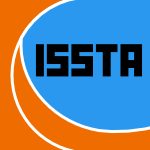 ISSTA-2007-HarmanM #empirical #generative #testing
ISSTA-2007-HarmanM #empirical #generative #testing- A theoretical & empirical znalysis of evolutionary testing and hill climbing for structural test data generation (MH, PM), pp. 73–83.
 VMCAI-2007-Vardi #formal method #model checking #revisited
VMCAI-2007-Vardi #formal method #model checking #revisited- Automata-Theoretic Model Checking Revisited (MYV), pp. 137–150.
 DATE-2006-AlimondaACP #approach #energy #optimisation #pipes and filters #runtime
DATE-2006-AlimondaACP #approach #energy #optimisation #pipes and filters #runtime- A control theoretic approach to run-time energy optimization of pipelined processing in MPSoCs (AA, AA, SC, AP), pp. 876–877.
 PODS-2006-KolahiL #dependence #normalisation #on the
PODS-2006-KolahiL #dependence #normalisation #on the- On redundancy vs dependency preservation in normalization: an information-theoretic study of 3NF (SK, LL), pp. 114–123.
 MSR-2006-AskariH #evaluation #modelling #predict #scalability
MSR-2006-AskariH #evaluation #modelling #predict #scalability- Information theoretic evaluation of change prediction models for large-scale software (MA, RCH), pp. 126–132.
 STOC-2006-KushilevitzLR #composition #protocol #security
STOC-2006-KushilevitzLR #composition #protocol #security- Information-theoretically secure protocols and security under composition (EK, YL, TR), pp. 109–118.
 ICALP-v2-2006-KawachiY #quantum
ICALP-v2-2006-KawachiY #quantum- Quantum Hardcore Functions by Complexity-Theoretical Quantum List Decoding (AK, TY), pp. 216–227.
 ICALP-v2-2006-Mogelberg #formal method #modelling #morphism #parametricity #polymorphism
ICALP-v2-2006-Mogelberg #formal method #modelling #morphism #parametricity #polymorphism- Interpreting Polymorphic FPC into Domain Theoretic Models of Parametric Polymorphism (REM), pp. 372–383.
 ICALP-v2-2006-Stirling #approach #game studies #higher-order
ICALP-v2-2006-Stirling #approach #game studies #higher-order- A Game-Theoretic Approach to Deciding Higher-Order Matching (CS), pp. 348–359.
 ICPR-v1-2006-WenhardtDHND #3d #approach #re-engineering
ICPR-v1-2006-WenhardtDHND #3d #approach #re-engineering- An Information Theoretic Approach for Next Best View Planning in 3-D Reconstruction (SW, BD, JH, HN, JD), pp. 103–106.
 ICPR-v2-2006-DagliRH #information management
ICPR-v2-2006-DagliRH #information management- Utilizing Information Theoretic Diversity for SVM Active Learn (CKD, SR, TSH), pp. 506–511.
 ICPR-v2-2006-DeguchiO #approach #effectiveness
ICPR-v2-2006-DeguchiO #approach #effectiveness- An Information Theoretic Approach for Active and Effective Object Recognitions (KD, HO), p. 622.
 ICPR-v3-2006-GanLY06a #array #biology #constraints #framework #set
ICPR-v3-2006-GanLY06a #array #biology #constraints #framework #set- Microarray Missing Data Imputation based on a Set Theoretic Framework and Biological Constraints (XG, AWCL, HY), pp. 842–845.
 ICPR-v3-2006-TanakaFKI #theorem
ICPR-v3-2006-TanakaFKI #theorem- A Theoretical and Experimental Consideration on Interference in Resolutions between Sampling Theorem and OK-Quantization Theory (YT, TF, HK, TI), pp. 869–872.
 KDD-2006-BohmFPP #clustering #robust
KDD-2006-BohmFPP #clustering #robust- Robust information-theoretic clustering (CB, CF, JYP, CP), pp. 65–75.
 KDD-2006-KeCN #approach #correlation #mining #using
KDD-2006-KeCN #approach #correlation #mining #using- Mining quantitative correlated patterns using an information-theoretic approach (YK, JC, WN), pp. 227–236.
 KR-2006-FritzM
KR-2006-FritzM- Decision-Theoretic GOLOG with Qualitative Preferences (CF, SAM), pp. 153–163.
 SIGIR-2006-BlankeL #benchmark #metric #retrieval #xml
SIGIR-2006-BlankeL #benchmark #metric #retrieval #xml- Theoretical benchmarks of XML retrieval (TB, ML), pp. 613–614.
 IJCAR-2006-ConstableM #proving #semantics #source code
IJCAR-2006-ConstableM #proving #semantics #source code- Extracting Programs from Constructive HOL Proofs Via IZF Set-Theoretic Semantics (RLC, WM), pp. 162–176.
 LICS-2006-KahlonG #approach #ltl #model checking #thread
LICS-2006-KahlonG #approach #ltl #model checking #thread- An Automata-Theoretic Approach for Model Checking Threads for LTL Propert (VK, AG), pp. 101–110.
 LICS-2006-Leivant #logic #proving #reasoning #source code
LICS-2006-Leivant #logic #proving #reasoning #source code- Matching Explicit and Modal Reasoning about Programs: A Proof Theoretic Delineation of Dynamic Logic (DL), pp. 157–168.
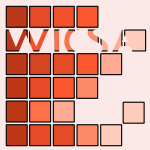 WICSA-2005-Booch #architecture
WICSA-2005-Booch #architecture- Quantitative Observation and Theoretical Construction in Software Architecture (GB), p. 3.
 ICSM-2005-NiuES #approach
ICSM-2005-NiuES #approach- A Category-theoretic Approach to Syntactic Software Merging (NN, SME, MS), pp. 197–206.
 DLT-2005-GruberHKK #automaton #on the
DLT-2005-GruberHKK #automaton #on the- On Timed Automata with Discrete Time — Structural and Language Theoretical Characterization (HG, MH, AK, BK), pp. 272–283.
 ICEIS-v2-2005-AhmanH #approach #game studies #reduction #simulation #using
ICEIS-v2-2005-AhmanH #approach #game studies #reduction #simulation #using- Using a Game Theoretical Approach for Experimental Simulation of Brood Reduction — Conflict and Co-Operation, Effect on Brood Size with Limited Resources (FÅ, LH), pp. 220–225.
 ICEIS-v3-2005-YangLZ #analysis #performance #process
ICEIS-v3-2005-YangLZ #analysis #performance #process- A Theoretical Performance Analysis Method for Business Process Model (LY, YL, XZ), pp. 73–80.
 ICML-2005-StrehlL #analysis #estimation #modelling
ICML-2005-StrehlL #analysis #estimation #modelling- A theoretical analysis of Model-Based Interval Estimation (ALS, MLL), pp. 856–863.
 SIGIR-2005-Hosanagar #approach #distributed #information retrieval
SIGIR-2005-Hosanagar #approach #distributed #information retrieval- A utility theoretic approach to determining optimal wait times in distributed information retrieval (KH), pp. 91–97.
 POPL-2005-BruniMM #composition
POPL-2005-BruniMM #composition- Theoretical foundations for compensations in flow composition languages (RB, HCM, UM), pp. 209–220.
 SAC-2005-GiannellaS #estimation
SAC-2005-GiannellaS #estimation- An information theoretic histogram for single dimensional selectivity estimation (CG, BS), pp. 676–677.
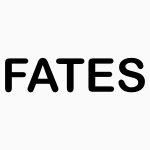 FATES-2005-XieD #approach #concurrent #testing
FATES-2005-XieD #approach #concurrent #testing- Testing Systems of Concurrent Black-Boxes-An Automata-Theoretic and Decompositional Approach (GX, ZD), pp. 170–186.
 LICS-2005-Hofmann #approach
LICS-2005-Hofmann #approach- Proof-Theoretic Approach to Description-Logic (MH0), pp. 229–237.
 DAC-2004-Shanbhag #design #paradigm #reliability
DAC-2004-Shanbhag #design #paradigm #reliability- A communication-theoretic design paradigm for reliable SOCs (NRS), p. 76.
 DAC-2004-ZhaiBSF #scalability
DAC-2004-ZhaiBSF #scalability- Theoretical and practical limits of dynamic voltage scaling (BZ, DB, DS, KF), pp. 868–873.
 DATE-v1-2004-IranliCP #approach #energy #game studies #streaming #video
DATE-v1-2004-IranliCP #approach #energy #game studies #streaming #video- A Game Theoretic Approach to Low Energy Wireless Video Streaming (AI, KC, MP), pp. 696–697.
 HT-2004-StottsF #classification #hypermedia
HT-2004-StottsF #classification #hypermedia- Language-theoretic classification of hypermedia paths (PDS, RF), pp. 40–41.
 SIGMOD-2004-AndritsosMT #database #mining #scalability #set #tool support
SIGMOD-2004-AndritsosMT #database #mining #scalability #set #tool support- Information-Theoretic Tools for Mining Database Structure from Large Data Sets (PA, RJM, PT), pp. 731–742.
 ITiCSE-2004-Ben-AriBBH #education #question #research #what
ITiCSE-2004-Ben-AriBBH #education #question #research #what- What do we mean by theoretically sound research in computer science education? (MBA, AB, SB, CH), pp. 230–231.
 ITiCSE-WGR-2004-HazzanL #education #performance
ITiCSE-WGR-2004-HazzanL #education #performance- The practicum in computer science education: bridging gaps between theoretical knowledge and actual performance (OH, TL), pp. 47–51.
 CIAA-2004-Ibarra #infinity
CIAA-2004-Ibarra #infinity- Automata-Theoretic Techniques for Analyzing Infinite-State Systems (OHI), p. 1.
 ICALP-2004-EdalatP #theorem
ICALP-2004-EdalatP #theorem- A Domain Theoretic Account of Picard’s Theorem (AE, DP), pp. 494–505.
 ICFP-2004-AriolaHS #continuation
ICFP-2004-AriolaHS #continuation- A type-theoretic foundation of continuations and prompts (ZMA, HH, AS), pp. 40–53.
 ECIR-2004-NottelmannF #approach
ECIR-2004-NottelmannF #approach- Combining CORI and the Decision-Theoretic Approach for Advanced Resource Selection (HN, NF), pp. 138–153.
 ICML-2004-BanerjeeDGM #analysis #estimation #exponential #product line
ICML-2004-BanerjeeDGM #analysis #estimation #exponential #product line- An information theoretic analysis of maximum likelihood mixture estimation for exponential families (AB, ISD, JG, SM).
 ICML-2004-HardinTA #feature model #linear
ICML-2004-HardinTA #feature model #linear- A theoretical characterization of linear SVM-based feature selection (DPH, IT, CFA).
 ICPR-v2-2004-UnslanB #development #graph #metric
ICPR-v2-2004-UnslanB #development #graph #metric- A Theoretical and Experimental Investigation of Graph Theoretical Measures for Land Development in Satellite Imagery (CÜ, KLB), pp. 64–67.
 ICPR-v3-2004-ArchambeauBPVT #classification #parametricity
ICPR-v3-2004-ArchambeauBPVT #classification #parametricity- Supervised Nonparametric Information Theoretic Classification (CA, TB, VP, MV, JPT), pp. 414–417.
 ICPR-v3-2004-LiSH #estimation #feedback #graph #image #retrieval
ICPR-v3-2004-LiSH #estimation #feedback #graph #image #retrieval- Image Retrieval with Relevance Feedback Based on Graph-Theoretic Region Correspondence Estimation (CYL, MCS, CTH), pp. 842–845.
 ICPR-v3-2004-TwiningMT #approach #image #problem
ICPR-v3-2004-TwiningMT #approach #image #problem- A Unified Information-Theoretic Approach to the Correspondence Problem in Image Registration (CJT, SM, CJT), pp. 704–709.
 KDD-2004-KumarMS #approach #graph
KDD-2004-KumarMS #approach #graph- A graph-theoretic approach to extract storylines from search results (RK, UM, DS), pp. 216–225.
 SAC-2004-ZhangVlY #approach #communication #design #multi
SAC-2004-ZhangVlY #approach #communication #design #multi- A decision-theoretic approach for designing proactive communication in multi-agent teamwork (YZ, RAV, TRI, JY), pp. 64–71.
 CC-2004-ParkerC #algorithm
CC-2004-ParkerC #algorithm- An Automata-Theoretic Algorithm for Counting Solutions to Presburger Formulas (EP, SC), pp. 104–119.
 FATES-2004-XieD #approach #component #model checking
FATES-2004-XieD #approach #component #model checking- An Automata-Theoretic Approach for Model-Checking Systems with Unspecified Components (GX, ZD), pp. 155–169.
 ASE-2003-HarrisR
ASE-2003-HarrisR- Theoretical Foundations of Updating Systems (HH, MR), pp. 291–294.
 ASE-2003-SabetzadehE #analysis #approach #consistency #graph #nondeterminism
ASE-2003-SabetzadehE #analysis #approach #consistency #graph #nondeterminism- Analysis of Inconsistency in Graph-Based Viewpoints: A Category-Theoretic Approach (MS, SME), pp. 12–21.
 ICDAR-2003-KangD03a #classification #evaluation #multi
ICDAR-2003-KangD03a #classification #evaluation #multi- Evaluation of the Information-Theoretic Construction of Multiple Classifier Systems (HJK, DSD), pp. 789–793.
 PODS-2003-ArenasL #approach #normalisation #relational #xml
PODS-2003-ArenasL #approach #normalisation #relational #xml- An information-theoretic approach to normal forms for relational and XML data (MA, LL), pp. 15–26.
 ITiCSE-2003-Trakhtenbrot #analysis #concept #how
ITiCSE-2003-Trakhtenbrot #analysis #concept #how- Analysis of typical misconceptions in a theoretical CS course, and how to address them in e-learning (MBT), p. 241.
 FASE-2003-Morasca #approach #metric
FASE-2003-Morasca #approach #metric- Foundations of a Weak Measurement-Theoretic Approach to Software Measurement (SM), pp. 200–215.
 DLT-2003-Esparza #approach #verification
DLT-2003-Esparza #approach #verification- An Automata-Theoretic Approach to Software Verification (JE), p. 21.
 ICEIS-v4-2003-Zhao #analysis
ICEIS-v4-2003-Zhao #analysis- Analysis of Business to Business Electronic Markets in China: Theoretical and Practical Perspectives (JZ), pp. 377–385.
 KDD-2003-DhillonMM #clustering
KDD-2003-DhillonMM #clustering- Information-theoretic co-clustering (ISD, SM, DSM), pp. 89–98.
 SIGIR-2003-AslamF #documentation #similarity
SIGIR-2003-AslamF #documentation #similarity- An information-theoretic measure for document similarity (JAA, MF), pp. 449–450.
 SAC-2003-LomonosovSP #game studies #trade-off
SAC-2003-LomonosovSP #game studies #trade-off- Stability vs. Optimality Tradeoff in Game Theoretic Mechanisms for QoS Provision (AL, MS, KP), pp. 28–32.
 ICLP-2003-BruscoliG #logic programming #proving #tutorial
ICLP-2003-BruscoliG #logic programming #proving #tutorial- A Tutorial on Proof Theoretic Foundations of Logic Programming (PB, AG), pp. 109–127.
 PODS-2002-Lenzerini #integration #perspective
PODS-2002-Lenzerini #integration #perspective- Data Integration: A Theoretical Perspective (ML), pp. 233–246.
 ICPR-v4-2002-AppelN #3d #framework #image #re-engineering
ICPR-v4-2002-AppelN #3d #framework #image #re-engineering- 3D Reconstruction from Co-Registered Orthographic and Perspective Images: Theoretical Framework and Applications (MA, NN), pp. 21–26.
 KDD-2002-Ben-DavidGS #data flow #framework #learning
KDD-2002-Ben-DavidGS #data flow #framework #learning- A theoretical framework for learning from a pool of disparate data sources (SBD, JG, RS), pp. 443–449.
 HPCA-2002-SkadronAS #locality #modelling
HPCA-2002-SkadronAS #locality #modelling- Control-Theoretic Techniques and Thermal-RC Modeling for Accurate and Localized Dynamic Thermal Management (KS, TFA, MRS), pp. 17–28.
 CADE-2002-Paulson #case study #reasoning #theorem
CADE-2002-Paulson #case study #reasoning #theorem- The Reflection Theorem: A Study in Meta-theoretic Reasoning (LCP), pp. 377–391.
 CSL-2002-Ogata #continuation #proving
CSL-2002-Ogata #continuation #proving- A Proof Theoretical Account of Continuation Passing Style (IO), pp. 490–505.
 ICLP-2002-JamilD #database #deduction #multi #semantics
ICLP-2002-JamilD #database #deduction #multi #semantics- A Model Theoretic Semantics for Multi-level Secure Deductive Databases (HMJ, GD), pp. 130–147.
 ICLP-2002-Pientka #higher-order #logic programming
ICLP-2002-Pientka #higher-order #logic programming- A Proof-Theoretic Foundation for Tabled Higher-Order Logic Programming (BP), pp. 271–286.
 VMCAI-2002-FaellaTM #game studies
VMCAI-2002-FaellaTM #game studies- Automata-Theoretic Decision of Timed Games (MF, SLT, AM), pp. 94–108.
 PODS-2001-GottlobLS #game studies #logic
PODS-2001-GottlobLS #game studies #logic- Robbers, Marshals, and Guards: Game Theoretic and Logical Characterizations of Hypertree Width (GG, NL, FS).
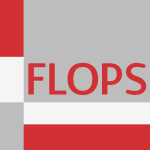 FLOPS-2001-CaballeroLR #debugging #declarative #functional #lazy evaluation #logic programming #source code
FLOPS-2001-CaballeroLR #debugging #declarative #functional #lazy evaluation #logic programming #source code- Theoretical Foundations for the Declarative Debugging of Lazy Functional Logic Programs (RC, FJLF, MRA), pp. 170–184.
 ICALP-2001-BeimelI #information retrieval
ICALP-2001-BeimelI #information retrieval- Information-Theoretic Private Information Retrieval: A Unified Construction (AB, YI), pp. 912–926.
 ICALP-2001-Maier #framework #reasoning
ICALP-2001-Maier #framework #reasoning- A Set-Theoretic Framework for Assume-Guarantee Reasoning (PM), pp. 821–834.
 ICALP-2001-Wegener #algorithm #aspect-oriented
ICALP-2001-Wegener #algorithm #aspect-oriented- Theoretical Aspects of Evolutionary Algorithms (IW), pp. 64–78.
 FME-2001-Airchinnigh #towards
FME-2001-Airchinnigh #towards- Towards a Topos Theoretic Foundation for the Irish School of Constructive Mathematics (MMaA), pp. 396–418.
 ICML-2001-Jiang #aspect-oriented #semistructured data
ICML-2001-Jiang #aspect-oriented #semistructured data- Some Theoretical Aspects of Boosting in the Presence of Noisy Data (WJ), pp. 234–241.
 LICS-2001-BenediktLSS #approach #string
LICS-2001-BenediktLSS #approach #string- A Model-Theoretic Approach to Regular String Relations (MB, LL, TS, LS), pp. 431–440.
 LICS-2001-Ganzinger #concept #decidability #problem #semantics #word
LICS-2001-Ganzinger #concept #decidability #problem #semantics #word- Relating Semantic and Proof-Theoretic Concepts for Polynominal Time Decidability of Uniform Word Problems (HG), pp. 81–90.
 ICALP-2000-Moszkowski #logic #proving
ICALP-2000-Moszkowski #logic #proving- An Automata-Theoretic Completeness Proof for Interval Temporal Logic (BCM), pp. 223–234.
 ICEIS-2000-OConnorW #self
ICEIS-2000-OConnorW #self- An Information Theoretic Self-Organising Map with Disaggregation of Output Classes (MO, WJW), pp. 108–115.
 CIKM-2000-Albert #multi
CIKM-2000-Albert #multi- Theoretical Foundations of Schema Restructuring in Heterogeneous Multidatabase Systems (JA), pp. 461–470.
 ICML-2000-CoelhoG #approach #learning
ICML-2000-CoelhoG #approach #learning- Learning in Non-stationary Conditions: A Control Theoretic Approach (JACJ, RAG), pp. 151–158.
 ICML-2000-NikovskiN #learning #mobile #modelling #navigation #probability
ICML-2000-NikovskiN #learning #mobile #modelling #navigation #probability- Learning Probabilistic Models for Decision-Theoretic Navigation of Mobile Robots (DN, IRN), pp. 671–678.
 ICML-2000-NiyogiK #approach #clustering #reduction
ICML-2000-NiyogiK #approach #clustering #reduction- An Approach to Data Reduction and Clustering with Theoretical Guarantees (PN, NK), pp. 679–686.
 ICPR-v2-2000-BaggenstossN #classification #probability #using
ICPR-v2-2000-BaggenstossN #classification #probability #using- A Theoretically Optimal Probabilistic Classifier Using Class-Specific Features (PMB, HN), pp. 2763–2768.
 ICPR-v2-2000-GhaderiW #analysis
ICPR-v2-2000-GhaderiW #analysis- Circular ECOC: A Theoretical and Experimental Analysis (RG, TW), pp. 2203–2206.
 ICPR-v2-2000-GiacintoR #classification #framework
ICPR-v2-2000-GiacintoR #classification #framework- A Theoretical Framework for Dynamic Classifier Selection (GG, FR), pp. 2008–2011.
 ICPR-v2-2000-KangL #classification #multi
ICPR-v2-2000-KangL #classification #multi- An Information-Theoretic Strategy for Constructing Multiple Classifier Systems (HJK, SWL), pp. 2483–2486.
 ICPR-v2-2000-ZhouLC
ICPR-v2-2000-ZhouLC- A Theoretical Justification of Nearest Feature Line Method (ZZ, SZL, KLC), pp. 2759–2762.
 KDD-2000-CrapoWWW #modelling #perspective #process #visualisation
KDD-2000-CrapoWWW #modelling #perspective #process #visualisation- Visualization and the process of modeling: a cognitive-theoretic view (AWC, LBW, WAW, TRW), pp. 218–226.
 SIGIR-2000-Aizawa
SIGIR-2000-Aizawa- The feature quantity: an information theoretic perspective of Tfidf-like measure (ANA), pp. 104–111.
 SIGIR-2000-Robertson #information retrieval
SIGIR-2000-Robertson #information retrieval- Salton Award Lecture: On theoretical argument in information retrieval (SER), p. 1.
 TOOLS-ASIA-2000-LiuJC #approach #graph
TOOLS-ASIA-2000-LiuJC #approach #graph- A Graph-Theoretic Approach for Recognizing the User Interpretation without Conflicts (GL, WJ, ZC), pp. 291–298.
 CAV-2000-KupfermanV #approach #infinity #reasoning
CAV-2000-KupfermanV #approach #infinity #reasoning- An Automata-Theoretic Approach to Reasoning about Infinite-State Systems (OK, MYV), pp. 36–52.
 CAV-2000-Yoneda #named #verification
CAV-2000-Yoneda #named #verification- VINAS-P: A Tool for Trace Theoretic Verification of Timed Asynchronous Circuits (TY), pp. 572–575.
 RTA-2000-ContejeanCM #physics
RTA-2000-ContejeanCM #physics- Rewriting Techniques in Theoretical Physics (EC, AC, BM), pp. 80–94.
 ICDAR-1999-SrihariYG #analysis #automation
ICDAR-1999-SrihariYG #analysis #automation- Information Theoretic Analysis of Postal Address Fields for Automatic Address Interpretation (SNS, WjY, VG), pp. 309–312.
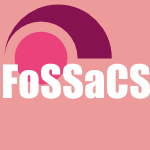 FoSSaCS-1999-EsparzaK #analysis #approach #data flow #interprocedural
FoSSaCS-1999-EsparzaK #analysis #approach #data flow #interprocedural- An Automata-Theoretic Approach to Interprocedural Data-Flow Analysis (JE, JK), pp. 14–30.
 STOC-1999-IshaiK #bound #information retrieval
STOC-1999-IshaiK #bound #information retrieval- Improved Upper Bounds on Information-Theoretic Private Information Retrieval (Extended Abstract) (YI, EK), pp. 79–88.
 ICALP-1999-DickhoferW #automaton #model checking #problem
ICALP-1999-DickhoferW #automaton #model checking #problem- Timed Alternating Tree Automata: The Automata-Theoretic Solution to the TCTL Model Checking Problem (MD, TW), pp. 281–290.
 HCI-EI-1999-WallachP #architecture #human-computer
HCI-EI-1999-WallachP #architecture #human-computer- Cognitive Architectures — A Theoretical Foundation for HCI (DW, MP), pp. 491–495.
 KDD-1999-AggarwalWWY #approach #collaboration #graph
KDD-1999-AggarwalWWY #approach #collaboration #graph- Horting Hatches an Egg: A New Graph-Theoretic Approach to Collaborative Filtering (CCA, JLW, KLW, PSY), pp. 201–212.
 TLCA-1999-EidorffHMNST #approach #problem
TLCA-1999-EidorffHMNST #approach #problem- AnnoDomini in Practice: A Type-Theoretic Approach to the Year 2000 Problem (PHE, FH, CM, HN, MHS, MT), pp. 6–13.
 DATE-1998-RosenbergerH #approach #behaviour #functional #modelling #simulation
DATE-1998-RosenbergerH #approach #behaviour #functional #modelling #simulation- A Systems Theoretic Approach to Behavioural Modeling and Simulation of Analog Functional Blocks (RR, SAH), pp. 721–728.
 STOC-1998-Fredman
STOC-1998-Fredman- Information Theoretic Implications for Pairing Heaps (MLF), pp. 319–326.
 ICML-1998-HuW #algorithm #framework #learning #multi
ICML-1998-HuW #algorithm #framework #learning #multi- Multiagent Reinforcement Learning: Theoretical Framework and an Algorithm (JH, MPW), pp. 242–250.
 ICML-1998-Lin #similarity
ICML-1998-Lin #similarity- An Information-Theoretic Definition of Similarity (DL), pp. 296–304.
 SAC-1998-BeschP #approach #clustering
SAC-1998-BeschP #approach #clustering- A group theoretic approach to data and code partitioning (MB, HWP), pp. 575–583.
 CADE-1998-Pnueli #deduction #verification
CADE-1998-Pnueli #deduction #verification- Deductive vs. Model-Theoretic Approaches to Formal Verification (Abstract of Invited Talk) (AP), p. 301.
 JICSLP-1998-Cervesato #compilation #logic programming
JICSLP-1998-Cervesato #compilation #logic programming- Proof-Theoretic Foundation of Compilation in Logic Programming (IC), pp. 115–129.
 LICS-1998-Vardi #branch #linear #perspective
LICS-1998-Vardi #branch #linear #perspective- Linear vs. Branching Time: A Complexity-Theoretic Perspective (MYV), pp. 394–405.
 PODS-1997-Hull #database #perspective #semantics
PODS-1997-Hull #database #perspective #semantics- Managing Semantic Heterogeneity in Databases: A Theoretical Perspective (RH), pp. 51–61.
 ICALP-1997-Fu #approach #communication #proving
ICALP-1997-Fu #approach #communication #proving- A Proof Theoretical Approach to Communication (YF), pp. 325–335.
 ICALP-1997-HondaY #analysis #call-by #game studies
ICALP-1997-HondaY #analysis #call-by #game studies- Game Theoretic Analysis of Call-by-Value Computation (KH, NY), pp. 225–236.
 ICML-1997-Auer #approach #empirical #evaluation #learning #multi #on the
ICML-1997-Auer #approach #empirical #evaluation #learning #multi #on the- On Learning From Multi-Instance Examples: Empirical Evaluation of a Theoretical Approach (PA), pp. 21–29.
 RE-1997-PottsN #requirements
RE-1997-PottsN #requirements- Naturalistic Inquiry and Requirements Engineering: Reconciling Their Theoretical Foundations (CP, WN), pp. 118–127.
 CSL-1997-CoquandP #problem
CSL-1997-CoquandP #problem- A Proof-Theoretical Investigation of Zantema’s Problem (TC, HP), pp. 177–188.
 CSL-1997-Moschovakis #concurrent #game studies #recursion #λ-calculus
CSL-1997-Moschovakis #concurrent #game studies #recursion #λ-calculus- A Game-Theoretic, Concurrent and Fair Model of the Typed λ-calculus, with Full Recursion (YNM), pp. 341–359.
 TLCA-1997-Kurata
TLCA-1997-Kurata- A Type Theoretical View of Böhm-Trees (TK), pp. 231–247.
 STOC-1996-Cesa-BianchiDFS #bound #learning
STOC-1996-Cesa-BianchiDFS #bound #learning- Noise-Tolerant Learning Near the Information-Theoretic Bound (NCB, ED, PF, HUS), pp. 141–150.
 ICML-1996-GoldmanS #algorithm #empirical
ICML-1996-GoldmanS #algorithm #empirical- A Theoretical and Empirical Study of a Noise-Tolerant Algorithm to Learn Geormetric Patterns (SAG, SDS), pp. 191–199.
 ICML-1996-OkamotoY #analysis #classification #nearest neighbour
ICML-1996-OkamotoY #analysis #classification #nearest neighbour- Theoretical Analysis of the Nearest Neighbor Classifier in Noisy Domains (SO, NY), pp. 355–363.
 ICML-1996-PendrithR #difference #learning
ICML-1996-PendrithR #difference #learning- Actual Return Reinforcement Learning versus Temporal Differences: Some Theoretical and Experimental Results (MDP, MRKR), pp. 373–381.
 ICPR-1996-BandyopadhyayMP #classification
ICPR-1996-BandyopadhyayMP #classification- GA-based pattern classification: theoretical and experimental studies (SB, CAM, SKP), pp. 758–762.
 KR-1996-DungS #approach #reasoning
KR-1996-DungS #approach #reasoning- An Argumentation-theoretic Approach to Reasoning with Specificity (PMD, TCS), pp. 506–517.
 LICS-1996-Ong #category theory #proving #semantics
LICS-1996-Ong #category theory #proving #semantics- A Semantic View of Classical Proofs: Type-Theoretic, Categorical, and Denotational Characterizations (Preliminary Extended Abstract) (CHLO), pp. 230–241.
 SAS-1995-WolperB #approach #constraints
SAS-1995-WolperB #approach #constraints- An Automata-Theoretic Approach to Presburger Arithmetic Constraints (Extended Abstract) (PW, BB), pp. 21–32.
 CHI-1995-NicholsR #alias #automation #generative #motivation
CHI-1995-NicholsR #alias #automation #generative #motivation- A Theoretically Motivated Tool for Automatically Generating Command Aliases (SN, FER), pp. 393–400.
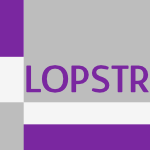 LOPSTR-1995-ToniK #approach #logic programming #program transformation
LOPSTR-1995-ToniK #approach #logic programming #program transformation- An Argumentation-Theoretic Approach to Logic Program Transformation (FT, RAK), pp. 61–75.
 CAV-1995-CousotC #composition #constraints #equation #fixpoint #game studies #induction #rule-based #semantics
CAV-1995-CousotC #composition #constraints #equation #fixpoint #game studies #induction #rule-based #semantics- Compositional and Inductive Semantic Definitions in Fixpoint, Equational, Constraint, Closure-condition, Rule-based and Game-Theoretic Form (PC, RC), pp. 293–308.
 CAV-1995-EmersonS #approach #model checking #symmetry
CAV-1995-EmersonS #approach #model checking #symmetry- Utilizing Symmetry when Model Checking under Fairness Assumptions: An Automata-theoretic Approach (EAE, APS), pp. 309–324.
 CAV-1995-McMillan #using #verification
CAV-1995-McMillan #using #verification- Trace Theoretic Verification of Asynchronous Circuits Using Unfoldings (KLM), pp. 180–195.
 CAV-1995-Vardi #approach #synthesis
CAV-1995-Vardi #approach #synthesis- An Automata-Theoretic Approach to Fair Realizability and Synthesis (MYV), pp. 267–278.
 TAGT-1994-Bauderon #approach #generative #graph #infinity
TAGT-1994-Bauderon #approach #generative #graph #infinity- A Category-Theoretical Approach to Vertex Replacement: The Generation of Infinite Graphs (MB), pp. 27–37.
 KR-1994-CohenH #learning #logic
KR-1994-CohenH #learning #logic- Learning the Classic Description Logic: Theoretical and Experimental Results (WWC, HH), pp. 121–133.
 OOPSLA-1994-KobayashiY #concurrent #object-oriented #programming
OOPSLA-1994-KobayashiY #concurrent #object-oriented #programming- Type-Theoretic Foundations for Concurrent Object-Oriented Programming (NK, AY), pp. 31–45.
 LOPSTR-1994-Wiggins #re-engineering
LOPSTR-1994-Wiggins #re-engineering- Improving the Whelk System: A Type-Theoretic Reconstruction (GAW), pp. 231–247.
 PLILP-1994-BoulangerBD #approach #using
PLILP-1994-BoulangerBD #approach #using- Abstracting s-semantincs Using A Model-Theoretic Approach (DB, MB, MD), pp. 432–446.
 POPL-1994-HarperL #approach #higher-order
POPL-1994-HarperL #approach #higher-order- A Type-Theoretic Approach to Higher-Order Modules with Sharing (RH, ML), pp. 123–137.
 SAC-1994-RitschelPG #classification #multi #rating
SAC-1994-RitschelPG #classification #multi #rating- Rating of pattern classifications in multi-layer perceptrons: theoretical background and practical results (WR, TP, RG), pp. 142–144.
 CAV-1994-BernholtzVW #approach #model checking
CAV-1994-BernholtzVW #approach #model checking- An Automata-Theoretic Approach to Branching-Time Model Checking (Extended Abstract) (OB, MYV, PW), pp. 142–155.
 LICS-1994-FioreP #axiom #formal method #modelling
LICS-1994-FioreP #axiom #formal method #modelling- An Axiomatization of Computationally Adequate Domain Theoretic Models of FPC (MPF, GDP), pp. 92–102.
 VLDB-1993-PoulovassilisS #approach #database #functional #logic
VLDB-1993-PoulovassilisS #approach #database #functional #logic- A Domain-theoretic Approach to Integrating Functional and Logic Database Languages (AP, CS), pp. 416–428.
 HCI-SHI-1993-WojtkowskiW #authoring #development #multi #tool support
HCI-SHI-1993-WojtkowskiW #authoring #development #multi #tool support- Multimedia Development Platforms and Authoring Tools: Practical and Theoretical Frontiers (WW, WGW), pp. 537–542.
 ICML-1993-CarpinetoR #approach #clustering #concept #named
ICML-1993-CarpinetoR #approach #clustering #concept #named- GALOIS: An Order-Theoretic Approach to Conceptual Clustering (CC, GR), pp. 33–40.
 ICML-1993-MusickCR #database #induction #scalability
ICML-1993-MusickCR #database #induction #scalability- Decision Theoretic Subsampling for Induction on Large Databases (RM, JC, SJR), pp. 212–219.
 DAC-1992-WangW #graph #optimisation
DAC-1992-WangW #graph #optimisation- A Graph Theoretic Technique to Speed up Floorplan Area Optimization (TCW, DFW), pp. 62–68.
 STOC-1992-BellantoniC #recursion
STOC-1992-BellantoniC #recursion- A New Recursion-Theoretic Characterization of the Polytime Functions (Extended Abstract) (SB, SAC), pp. 283–293.
 ICALP-1992-SannellaT #algebra #development #source code #specification #towards
ICALP-1992-SannellaT #algebra #development #source code #specification #towards- Towards Formal Development of Programs from Algebraic Specifications: Model-Theoretic Foundations (DS, AT), pp. 656–671.
 KR-1992-HaddawyH
KR-1992-HaddawyH- Representations for Decision-Theoretic Planning: Utility Functions for Deadline Goals (PH, SH), pp. 71–82.
 TOOLS-USA-1992-Mitchell #object-oriented
TOOLS-USA-1992-Mitchell #object-oriented- Theoretical Basis of Object-Oriented Methods (JM), p. 272.
 CADE-1992-BenhamouS #calculus #symmetry
CADE-1992-BenhamouS #calculus #symmetry- Theoretical Study of Symmetries in Propositional Calculus and Applications (BB, LS), pp. 281–294.
 ML-1991-Brand #learning
ML-1991-Brand #learning- Decision-Theoretic Learning in an Action System (MB), pp. 283–287.
 CAV-1991-Jong #approach #automaton #logic
CAV-1991-Jong #approach #automaton #logic- An Automata Theoretic Approach to Temporal Logic (GGdJ), pp. 477–487.
 ISLP-1991-HarlandP #linear #logic programming
ISLP-1991-HarlandP #linear #logic programming- The Uniform Proof-Theoretic Foundation of Linear Logic Programming (JH, DJP), pp. 304–318.
 PODS-1990-Yannakakis #database #graph
PODS-1990-Yannakakis #database #graph- Graph-Theoretic Methods in Database Theory (MY), pp. 230–242.
 STOC-1990-FredmanW
STOC-1990-FredmanW- BLASTING through the Information Theoretic Barrier with FUSION TREES (MLF, DEW), pp. 1–7.
 ICALP-1990-JagadeesanP #calculus #formal method #higher-order #process
ICALP-1990-JagadeesanP #calculus #formal method #higher-order #process- A Domain-Theoretic Model for a Higher-Order Process Calculus (RJ, PP), pp. 181–194.
 SEKE-1990-BairdS #aspect-oriented #programming language
SEKE-1990-BairdS #aspect-oriented #programming language- Theoretical Aspects of the Universal Programming Language Genotype (JCB, SKS), pp. 135–140.
 ML-1989-WefaldR #adaptation #learning
ML-1989-WefaldR #adaptation #learning- Adaptive Learning of Decision-Theoretic Search Control Knowledge (EW, SJR), pp. 408–411.
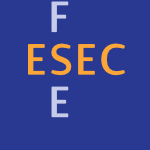 ESEC-1989-Ince #analysis #data flow #design #empirical #metric
ESEC-1989-Ince #analysis #data flow #design #empirical #metric- Martin J. Shepperd: An Empirical and Theoretical Analysis of an Information Flow-Based System Design Metric (DCI), pp. 86–99.
 CSL-1989-CantoneCP #problem #reduction
CSL-1989-CantoneCP #problem #reduction- Set-Theoretic Reductions of Hilbert’s Tenth Problem (DC, VC, AP), pp. 65–75.
 LICS-1989-Moschovakis #concurrent #formal method #game studies #modelling
LICS-1989-Moschovakis #concurrent #formal method #game studies #modelling- A Game-Theoretic Modeling of Concurrency (YNM), pp. 154–163.
 TAV-1989-Hamlet #comparison #testing
TAV-1989-Hamlet #comparison #testing- Theoretical Comparison of Testing Methods (RGH), pp. 28–37.
 VLDB-1988-ShumM
VLDB-1988-ShumM- An Information-Theoretic Study on Aggregate Responses (CDS, RRM), pp. 479–490.
 VDME-1988-BorzyszkowskiKS #formal method #polymorphism #λ-calculus
VDME-1988-BorzyszkowskiKS #formal method #polymorphism #λ-calculus- A Set-Theoretic Model for a Typed Polymorphic λ Calculus — A Contribution to MetaSoft (AMB, RK, SS), pp. 267–298.
 SIGIR-1988-BollmannR #analysis
SIGIR-1988-BollmannR #analysis- A Utility-Theoretic Analysis of Expected Search Length (PB, VVR), pp. 245–256.
 LICS-1988-DershowitzO #term rewriting
LICS-1988-DershowitzO #term rewriting- Proof-Theoretic Techniques for Term Rewriting Theory (ND, MO), pp. 104–111.
 PODS-1987-Hadzilacos #analysis #protocol
PODS-1987-Hadzilacos #analysis #protocol- A Knowledge Theoretic Analysis of Atomic Commitment Protocols (VH), pp. 129–134.
 CSL-1987-Dahlhaus #approach #parallel #programming
CSL-1987-Dahlhaus #approach #parallel #programming- Is SETL a Suitable Language for Parallel Programming — A Theoretical Approach (ED), pp. 56–63.
 ICLP-1987-Yamamoto87
ICLP-1987-Yamamoto87- A Theoretical Combination of SLD-Resolution and Narrowing (AY), pp. 470–487.
 LICS-1987-Allen
LICS-1987-Allen- A Non-Type-Theoretic Definition of Martin-Löf’s Types (SA), pp. 215–221.
 LICS-1987-Vardi #concurrent #framework #source code #verification
LICS-1987-Vardi #concurrent #framework #source code #verification- Verification of Concurrent Programs: The Automata-Theoretic Framework (MYV), pp. 167–176.
 PODS-1986-Weikum #concurrent #multi
PODS-1986-Weikum #concurrent #multi- A Theoretical Foundation of Multi-Level Concurrency Control (GW), pp. 31–43.
 PODS-1986-Wilkins #approach #database #logic
PODS-1986-Wilkins #approach #database #logic- A Model-Theoretic Approach to Updating Logical Databases (MW), pp. 224–234.
 ICALP-1986-Schoning #bound #recursion
ICALP-1986-Schoning #bound #recursion- Lower Bounds by Recursion Theoretic Arguments (Extended Abstract) (US), pp. 370–375.
 GG-1986-Nagl #graph grammar #set
GG-1986-Nagl #graph grammar #set- Set theoretic approaches to graph grammars (MN), pp. 41–54.
 SIGIR-1986-Rijsbergen #framework #information retrieval
SIGIR-1986-Rijsbergen #framework #information retrieval- A New Theoretical Framework for Information Retrieval (CJvR), pp. 194–200.
 LICS-1986-MonteiroP #concurrent #formal method
LICS-1986-MonteiroP #concurrent #formal method- A Sheaf-Theoretic Model of Concurrency (LM, FCNP), pp. 66–76.
 LICS-1986-VardiW #approach #automation #verification
LICS-1986-VardiW #approach #automation #verification- An Automata-Theoretic Approach to Automatic Program Verification (Preliminary Report) (MYV, PW), pp. 332–344.
 DAC-1985-NgJ #approach #generative #graph
DAC-1985-NgJ #approach #generative #graph- Generation of layouts from MOS circuit schematics: a graph theoretic approach (TKN, SLJ), pp. 39–45.
 SIGIR-1985-Korfhage #documentation #metric
SIGIR-1985-Korfhage #documentation #metric- Theoretical Measures in P/Q Document Spaces (RK), pp. 33–40.
 RTA-1985-Kandri-RodyKN #algebra #approach #commutative #problem #unification
RTA-1985-Kandri-RodyKN #algebra #approach #commutative #problem #unification- An Ideal-Theoretic Approach to Work Problems and Unification Problems over Finitely Presented Commutative Algebras (AKR, DK, PN), pp. 345–364.
 PODS-1984-CosmadakisK #approach #dependence #functional #graph
PODS-1984-CosmadakisK #approach #dependence #functional #graph- Functional and Inclusion Dependencies: A Graph Theoretic Approach (SSC, PCK), pp. 29–37.
 STOC-1984-VardiW #automaton #logic #source code
STOC-1984-VardiW #automaton #logic #source code- Automata Theoretic Techniques for Modal Logics of Programs (Extended Abstract) (MYV, PW), pp. 446–456.
 ICALP-1984-Rosenberg
ICALP-1984-Rosenberg- The VLSI Revolution in Theoretical Circles (ALR), pp. 23–40.
 PODS-1983-AbiteboulSS #aspect-oriented #database
PODS-1983-AbiteboulSS #aspect-oriented #database- Information Theoretic Aspects of Data Bases (SA, MS, NS), pp. 312–316.
 STOC-1983-Sipser83a #approach #complexity
STOC-1983-Sipser83a #approach #complexity- A Complexity Theoretic Approach to Randomness (MS), pp. 330–335.
 ICALP-1982-DammG
ICALP-1982-DammG- An Automata-Theoretic Characterization of the OI-Hierarchy (WD, AG), pp. 141–153.
 VLDB-1981-Hainaut #database #design #tool support
VLDB-1981-Hainaut #database #design #tool support- Theoretical and Practical Tools for Data Base Design (JLH), pp. 216–224.
 STOC-1980-PaulSS #approach #bound #online
STOC-1980-PaulSS #approach #bound #online- An Information-Theoretic Approach to Time Bounds for On-Line Computation (Preliminary Version) (WJP, JIS, JS), pp. 357–367.
 SIGIR-1980-BollmannC
SIGIR-1980-BollmannC- Measurement-Theoretical Investigation of the MZ-Metric (PB, VSC), pp. 256–267.
 POPL-1980-BuddDLS #correctness #functional #source code #using
POPL-1980-BuddDLS #correctness #functional #source code #using- Theoretical and Emperical Studies on Using Program Mutation to Test the Functional Correctness of Programs (TAB, RAD, RJL, FGS), pp. 220–233.
 POPL-1980-MeyerH #assessment #axiom #programming language
POPL-1980-MeyerH #assessment #axiom #programming language- Axiomatic Definitions of Programming Languages: A Theoretical Assessment (ARM, JYH), pp. 203–212.
 CADE-1980-AielloW #algebra #reasoning #using
CADE-1980-AielloW #algebra #reasoning #using- Using Meta-Theoretic Reasoning to do Algebra (LCA, RWW), pp. 1–13.
 ICALP-1979-BertoniMM #invariant
ICALP-1979-BertoniMM #invariant- A Characterization of Abstract Data as Model-Theoretic Invariants (AB, GM, PM), pp. 26–37.
 ICALP-1979-Karp #algorithm #analysis #graph #probability
ICALP-1979-Karp #algorithm #analysis #graph #probability- Recent Advances in the Probabilistic Analysis of Graph-Theoretic Algorithms (Abstract) (RMK), pp. 338–339.
 DAC-1978-Ruch #approach #graph #interactive #layout
DAC-1978-Ruch #approach #graph #interactive #layout- Interactive space layout: A graph theoretical approach (JR), pp. 152–157.
 VLDB-1978-Delobel #aspect-oriented #database #modelling
VLDB-1978-Delobel #aspect-oriented #database #modelling- Data Base Theory and Modeling — Theoretical and Practical Aspects (CD), p. 112.
 STOC-1978-GurariI #problem
STOC-1978-GurariI #problem- An NP-Complete Number-Theoretic Problem (EMG, OHI), pp. 205–215.
 ICSE-1978-BrownF #approach #graph #verification
ICSE-1978-BrownF #approach #graph #verification- A Graph Theoretic Approach to the Verification of Program Structures (JRB, KFF), pp. 136–141.
 ICSE-1978-Howden #empirical #testing
ICSE-1978-Howden #empirical #testing- Theoretical and Empirical Studies of Program Testing (WEH), pp. 305–311.
 DAC-1977-AgarwalB #algorithm #aspect-oriented
DAC-1977-AgarwalB #algorithm #aspect-oriented- Some theoretical aspects of algorithmic routing (PA, MAB), pp. 23–31.
 VLDB-1977-MizumotoT #data type #implementation
VLDB-1977-MizumotoT #data type #implementation- Implementation of a Fuzzy-Set Theoretic Data Structure System (Abstract) (MM, MU, KT), p. 490.
 DAC-1974-CleemputL #formal method #graph #layout #problem
DAC-1974-CleemputL #formal method #graph #layout #problem- An improved graph-theoretic model for the circuit layout problem (WMvC, JGL), pp. 82–90.
 SIGFIDET-1974-Beitz #database #representation
SIGFIDET-1974-Beitz #database #representation- A Set-Theoretic View of Data Base Representation (EHB), pp. 477–494.
 DAC-1970-Sr #analysis #clustering #graph #logic #reduction
DAC-1970-Sr #analysis #clustering #graph #logic #reduction- Partitioning of logic graphs: A theoretical analysis of pin reduction (RBHS), pp. 54–63.
 ECSA-2015-PahlJ #architecture #formal method #modelling #roadmap #towards
ECSA-2015-PahlJ #architecture #formal method #modelling #roadmap #towards DAC-2015-KadjoAKG #approach #cpu #energy #gpu #mobile #performance
DAC-2015-KadjoAKG #approach #cpu #energy #gpu #mobile #performance SIGMOD-2015-ArmenatzoglouPN #approach #clustering #game studies #graph #multi #realtime #social
SIGMOD-2015-ArmenatzoglouPN #approach #clustering #game studies #graph #multi #realtime #social ICALP-v1-2015-AgrawalIKP #complexity #encoding #perspective #random #statistics
ICALP-v1-2015-AgrawalIKP #complexity #encoding #perspective #random #statistics DUXU-DD-2015-RytilahtiMV #design
DUXU-DD-2015-RytilahtiMV #design HCI-DE-2015-BoscarioliBSB #challenge #concept #education #how #human-computer #industrial
HCI-DE-2015-BoscarioliBSB #challenge #concept #education #how #human-computer #industrial ICML-2015-MaeharaYK #game studies #multi #perspective #problem
ICML-2015-MaeharaYK #game studies #multi #perspective #problem ICML-2015-PerrotH #analysis #learning #metric
ICML-2015-PerrotH #analysis #learning #metric SIGIR-2015-Zhai #framework #game studies #information retrieval #towards
SIGIR-2015-Zhai #framework #game studies #information retrieval #towards POPL-2015-Castagna0XA #polymorphism #re-engineering #type inference
POPL-2015-Castagna0XA #polymorphism #re-engineering #type inference SAC-2015-AissiGSS #evaluation #framework #personalisation #query #recommendation
SAC-2015-AissiGSS #evaluation #framework #personalisation #query #recommendation CSL-2015-SchubertDB #automaton #proving
CSL-2015-SchubertDB #automaton #proving TLCA-2015-WangC #independence #type system
TLCA-2015-WangC #independence #type system CASE-2014-HanZH #analysis
CASE-2014-HanZH #analysis ITiCSE-2014-Verwaal #learning
ITiCSE-2014-Verwaal #learning ICALP-v1-2014-Jakobsen
ICALP-v1-2014-Jakobsen IFM-2014-CalvaneseKSVZ #analysis #data type
IFM-2014-CalvaneseKSVZ #analysis #data type DUXU-TMT-2014-Lamontagne #paradigm #performance #smarttech
DUXU-TMT-2014-Lamontagne #paradigm #performance #smarttech HCI-TMT-2014-Bakke #approach #process #user interface
HCI-TMT-2014-Bakke #approach #process #user interface HCI-TMT-2014-PhotiadisZ #3d #design #experience #user interface #visualisation
HCI-TMT-2014-PhotiadisZ #3d #design #experience #user interface #visualisation ICML-c1-2014-SomaKIK #algorithm #performance
ICML-c1-2014-SomaKIK #algorithm #performance ICML-c1-2014-SteegGSD #clustering
ICML-c1-2014-SteegGSD #clustering ICML-c2-2014-WangRRCC #design #metric
ICML-c2-2014-WangRRCC #design #metric ICPR-2014-BlomerBK #algorithm #comparison
ICPR-2014-BlomerBK #algorithm #comparison ICPR-2014-QureshiHA #probability #using
ICPR-2014-QureshiHA #probability #using KDIR-2014-Nguyen0 #distance #edit distance #similarity
KDIR-2014-Nguyen0 #distance #edit distance #similarity KEOD-2014-SurynekS #big data #challenge #graph #information management #logic #perspective #reasoning
KEOD-2014-SurynekS #big data #challenge #graph #information management #logic #perspective #reasoning Onward-2014-Conversy #programming language #visual notation
Onward-2014-Conversy #programming language #visual notation PPDP-2014-AsaiFTZ #partial evaluation #specification
PPDP-2014-AsaiFTZ #partial evaluation #specification POPL-2014-Castagna0XILP #evaluation #polymorphism #semantics #syntax
POPL-2014-Castagna0XILP #evaluation #polymorphism #semantics #syntax SAC-2014-EliasMFB #algorithm #analysis #memory management
SAC-2014-EliasMFB #algorithm #analysis #memory management ICSE-2014-FilieriHM #adaptation #automation #design #self
ICSE-2014-FilieriHM #adaptation #automation #design #self PPoPP-2014-MaAC #algorithm #analysis #manycore #thread
PPoPP-2014-MaAC #algorithm #analysis #manycore #thread ICLP-J-2014-PimentelON #concurrent #constraints #programming #proving
ICLP-J-2014-PimentelON #concurrent #constraints #programming #proving ICST-2014-AmmannDO #set
ICST-2014-AmmannDO #set LICS-CSL-2014-BilokonE #approach #probability #process
LICS-CSL-2014-BilokonE #approach #probability #process ASE-2013-Garcia-GalanTC #approach #game studies #multi #variability
ASE-2013-Garcia-GalanTC #approach #game studies #multi #variability CASE-2013-AravamudhanML #estimation
CASE-2013-AravamudhanML #estimation DATE-2013-WildermannZT #analysis #distributed #game studies #manycore
DATE-2013-WildermannZT #analysis #distributed #game studies #manycore ITiCSE-2013-RodgerGML
ITiCSE-2013-RodgerGML CHI-2013-HeklerKFB #behaviour #human-computer #research #using
CHI-2013-HeklerKFB #behaviour #human-computer #research #using CSCW-2013-Waterhouse #metric
CSCW-2013-Waterhouse #metric DHM-SET-2013-Fass #biology #design #human-computer #modelling
DHM-SET-2013-Fass #biology #design #human-computer #modelling ICEIS-v1-2013-Santibanez-GonzalezM #network #novel
ICEIS-v1-2013-Santibanez-GonzalezM #network #novel CIKM-2013-Eklund #challenge #game studies #lessons learnt #mobile #on the #perspective
CIKM-2013-Eklund #challenge #game studies #lessons learnt #mobile #on the #perspective ICML-c3-2013-NiuJDHS #approach #learning #novel
ICML-c3-2013-NiuJDHS #approach #learning #novel KDIR-KMIS-2013-KolerovaOB #case study #clustering #industrial
KDIR-KMIS-2013-KolerovaOB #case study #clustering #industrial SIGIR-2013-ChenL
SIGIR-2013-ChenL ICSE-2013-Kukreja #approach #requirements #towards
ICSE-2013-Kukreja #approach #requirements #towards CASE-2012-ChenZAB #analysis #approach #performance #realtime
CASE-2012-ChenZAB #analysis #approach #performance #realtime CASE-2012-Markovski #framework
CASE-2012-Markovski #framework DAC-2012-ParkKCDCP #prototype
DAC-2012-ParkKCDCP #prototype DAC-2012-ZhouLCKQY #framework #monitoring
DAC-2012-ZhouLCKQY #framework #monitoring FASE-2012-LongCMM #abstraction #refinement
FASE-2012-LongCMM #abstraction #refinement ICALP-v2-2012-ReddyD #algol #formal method
ICALP-v2-2012-ReddyD #algol #formal method CSCW-2012-StuartDKKK #framework #social
CSCW-2012-StuartDKKK #framework #social ECIR-2012-CumminsO #information retrieval #on the
ECIR-2012-CumminsO #information retrieval #on the ICML-2012-ChenLL #algorithm #online
ICML-2012-ChenLL #algorithm #online ICML-2012-NiuDYS #learning #metric
ICML-2012-NiuDYS #learning #metric ICML-2012-ShiS #adaptation #clustering #learning
ICML-2012-ShiS #adaptation #clustering #learning ICPR-2012-Nielsen #statistics
ICPR-2012-Nielsen #statistics ICPR-2012-PangHYQW #analysis #classification #learning
ICPR-2012-PangHYQW #analysis #classification #learning KDIR-2012-SorkhiAHH #framework #game studies #identification #network #social
KDIR-2012-SorkhiAHH #framework #game studies #identification #network #social KMIS-2012-WangK #development #framework #on the
KMIS-2012-WangK #development #framework #on the KR-2012-LutzSW #approach #approximate #logic
KR-2012-LutzSW #approach #approximate #logic SIGIR-2012-BerardiES #automation #classification #ranking
SIGIR-2012-BerardiES #automation #classification #ranking ICMT-2012-TerwilligerCC #bidirectional #framework #how #incremental #towards
ICMT-2012-TerwilligerCC #bidirectional #framework #how #incremental #towards CSL-2012-CarraroS #consistency #equation #formal method #modelling #on the #λ-calculus
CSL-2012-CarraroS #consistency #equation #formal method #modelling #on the #λ-calculus ICLP-J-2012-Cervesato #compilation #logic programming #source code
ICLP-J-2012-Cervesato #compilation #logic programming #source code DAC-2011-Jandhyala #automation #design #network #social #tool support #web
DAC-2011-Jandhyala #automation #design #network #social #tool support #web DATE-2011-BeltrameN #algorithm #design #multi
DATE-2011-BeltrameN #algorithm #design #multi DATE-2011-RoyRM #algorithm #modelling #performance
DATE-2011-RoyRM #algorithm #modelling #performance FASE-2011-VanoverbergheP #aspect-oriented #composition #execution #symbolic computation
FASE-2011-VanoverbergheP #aspect-oriented #composition #execution #symbolic computation AFL-2011-LoeligerN #design #graph #user interface
AFL-2011-LoeligerN #design #graph #user interface ICFP-2011-CastagnaX #morphism #parametricity #polymorphism #type system
ICFP-2011-CastagnaX #morphism #parametricity #polymorphism #type system CHI-2011-BekkerA #design
CHI-2011-BekkerA #design CAiSE-2011-TranM #evolution #game studies #requirements #towards
CAiSE-2011-TranM #evolution #game studies #requirements #towards KDD-2011-AlqadahB #clustering #framework #game studies #network
KDD-2011-AlqadahB #clustering #framework #game studies #network KDD-2011-Bie #data mining #framework #mining
KDD-2011-Bie #data mining #framework #mining SAC-2011-SantosaMK #approach #named #programming #search-based
SAC-2011-SantosaMK #approach #named #programming #search-based CSL-2011-Schwencke #nondeterminism #recursion
CSL-2011-Schwencke #nondeterminism #recursion TLCA-2011-ArndtK #formal method #modelling #type system
TLCA-2011-ArndtK #formal method #modelling #type system DAC-2010-ObergHITSK #analysis #data flow
DAC-2010-ObergHITSK #analysis #data flow DAC-2010-ZhangLH #analysis
DAC-2010-ZhangLH #analysis FASE-2010-LiXBLM #approach #hardware
FASE-2010-LiXBLM #approach #hardware DLT-2010-Kari
DLT-2010-Kari IFL-2010-TorontoM #probability
IFL-2010-TorontoM #probability ICML-2010-BoureauPL #analysis #recognition #visual notation
ICML-2010-BoureauPL #analysis #recognition #visual notation ICML-2010-FaivishevskyG #algorithm #clustering #parametricity
ICML-2010-FaivishevskyG #algorithm #clustering #parametricity ICPR-2010-AlbarelliRCT #approach #game studies #robust
ICPR-2010-AlbarelliRCT #approach #game studies #robust ICPR-2010-BauckhageT #adaptation #clustering #image
ICPR-2010-BauckhageT #adaptation #clustering #image ICPR-2010-BicegoMMAF #2d #kernel #recognition #using
ICPR-2010-BicegoMMAF #2d #kernel #recognition #using ICPR-2010-BonevEGB #feature model #graph
ICPR-2010-BonevEGB #feature model #graph ICPR-2010-GarciaMS #analysis #performance
ICPR-2010-GarciaMS #analysis #performance ICPR-2010-MemonLM #modelling #verification
ICPR-2010-MemonLM #modelling #verification ICPR-2010-NegiK
ICPR-2010-NegiK ICPR-2010-RodolaAT #approach #game studies #multi #robust
ICPR-2010-RodolaAT #approach #game studies #multi #robust ICPR-2010-ZhangGA #analysis #linear
ICPR-2010-ZhangGA #analysis #linear KDD-2010-DangB #clustering #linear
KDD-2010-DangB #clustering #linear SEKE-2010-LinsteadHLB #metric
SEKE-2010-LinsteadHLB #metric SAC-2010-KimY #multi #personalisation #recommendation
SAC-2010-KimY #multi #personalisation #recommendation ISMM-2010-BegB #approach #graph
ISMM-2010-BegB #approach #graph FASE-2009-RutleRLW #approach #formal method #version control
FASE-2009-RutleRLW #approach #formal method #version control ICSM-2009-AndroutsopoulosGHLT #dependence #empirical
ICSM-2009-AndroutsopoulosGHLT #dependence #empirical DLT-2009-KountouriotisNR #boolean grammar #game studies
DLT-2009-KountouriotisNR #boolean grammar #game studies LATA-2009-Courcelle #algorithm #graph #higher-order #logic #monad
LATA-2009-Courcelle #algorithm #graph #higher-order #logic #monad HCD-2009-HsiehHY #design #web
HCD-2009-HsiehHY #design #web ICML-2009-NguyenEB #clustering #comparison #metric #question
ICML-2009-NguyenEB #clustering #comparison #metric #question ICML-2009-YuanH #feature model #learning #robust
ICML-2009-YuanH #feature model #learning #robust KDD-2009-AndoS #clustering #detection
KDD-2009-AndoS #clustering #detection KDD-2009-ZhengWLL
KDD-2009-ZhengWLL KEOD-2009-AbrusciRF #framework #information management #integration #representation
KEOD-2009-AbrusciRF #framework #information management #integration #representation ECMDA-FA-2009-ChenM #consistency #guidelines #uml
ECMDA-FA-2009-ChenM #consistency #guidelines #uml ICMT-2009-Stevens #approach #game studies #qvt
ICMT-2009-Stevens #approach #game studies #qvt SAC-2009-SinghB #identification #multi #web
SAC-2009-SinghB #identification #multi #web RTA-2009-TiuG #analysis #proving
RTA-2009-TiuG #analysis #proving SAT-2009-Skvortsov #analysis
SAT-2009-Skvortsov #analysis VMCAI-2009-Oshman #bound #model checking
VMCAI-2009-Oshman #bound #model checking DATE-2008-DavidLLN #approach #game studies #realtime #testing
DATE-2008-DavidLLN #approach #game studies #realtime #testing DATE-2008-StrakaMBK #aspect-oriented #metric #quality
DATE-2008-StrakaMBK #aspect-oriented #metric #quality ITiCSE-2008-SchluterB #education
ITiCSE-2008-SchluterB #education CIAA-2008-DixonES #analysis
CIAA-2008-DixonES #analysis ICALP-A-2008-Courcelle #aspect-oriented #graph #higher-order #logic #monad
ICALP-A-2008-Courcelle #aspect-oriented #graph #higher-order #logic #monad ICALP-B-2008-Martin #formal method #quantum
ICALP-B-2008-Martin #formal method #quantum CAiSE-2008-MuehlenR #how #modelling #process
CAiSE-2008-MuehlenR #how #modelling #process ICEIS-HCI-2008-BaddooBHRS
ICEIS-HCI-2008-BaddooBHRS KDD-2008-WuXC #clustering #incremental #learning #named
KDD-2008-WuXC #clustering #incremental #learning #named KR-2008-HahmannG #ontology
KR-2008-HahmannG #ontology SEKE-2008-Condori-FernandezP #metric #modelling #towards
SEKE-2008-Condori-FernandezP #metric #modelling #towards SIGIR-2008-Diaz08b #bound #empirical #metric #robust #similarity
SIGIR-2008-Diaz08b #bound #empirical #metric #robust #similarity POPL-2008-Pientka #higher-order #programming #syntax
POPL-2008-Pientka #higher-order #programming #syntax SAC-2008-AndresAN #experience #formal method #information management #using
SAC-2008-AndresAN #experience #formal method #information management #using SAC-2008-RamanathanKGJ #framework #graph #named #testing
SAC-2008-RamanathanKGJ #framework #graph #named #testing ITiCSE-2007-KorteAPG #approach #education #learning #novel
ITiCSE-2007-KorteAPG #approach #education #learning #novel MSR-2007-HerraizGR #towards
MSR-2007-HerraizGR #towards SEFM-2007-HallRJ #framework #problem #re-engineering
SEFM-2007-HallRJ #framework #problem #re-engineering HCI-IDU-2007-Nguyen-Ngoc #analysis #design #process
HCI-IDU-2007-Nguyen-Ngoc #analysis #design #process HCI-MIE-2007-KimL07b #optimisation
HCI-MIE-2007-KimL07b #optimisation HIMI-IIE-2007-StavrakisVKD #design #framework
HIMI-IIE-2007-StavrakisVKD #design #framework ICEIS-EIS-2007-GeH #quality
ICEIS-EIS-2007-GeH #quality ICEIS-HCI-2007-NoortHB #information management
ICEIS-HCI-2007-NoortHB #information management ECIR-2007-NottelmannF #distributed #formal method #network #peer-to-peer #query
ECIR-2007-NottelmannF #distributed #formal method #network #peer-to-peer #query ECIR-2007-YamoutOT #feedback #query #using
ECIR-2007-YamoutOT #feedback #query #using ICML-2007-DavisKJSD #learning #metric
ICML-2007-DavisKJSD #learning #metric RecSys-2007-AngladeTV #clustering #identification
RecSys-2007-AngladeTV #clustering #identification SEKE-2007-Condori-FernandezP #evaluation #functional #metric
SEKE-2007-Condori-FernandezP #evaluation #functional #metric CADE-2007-Harrison #automation #proving #using
CADE-2007-Harrison #automation #proving #using ISSTA-2007-HarmanM #empirical #generative #testing
ISSTA-2007-HarmanM #empirical #generative #testing VMCAI-2007-Vardi #formal method #model checking #revisited
VMCAI-2007-Vardi #formal method #model checking #revisited DATE-2006-AlimondaACP #approach #energy #optimisation #pipes and filters #runtime
DATE-2006-AlimondaACP #approach #energy #optimisation #pipes and filters #runtime PODS-2006-KolahiL #dependence #normalisation #on the
PODS-2006-KolahiL #dependence #normalisation #on the MSR-2006-AskariH #evaluation #modelling #predict #scalability
MSR-2006-AskariH #evaluation #modelling #predict #scalability STOC-2006-KushilevitzLR #composition #protocol #security
STOC-2006-KushilevitzLR #composition #protocol #security ICALP-v2-2006-KawachiY #quantum
ICALP-v2-2006-KawachiY #quantum ICALP-v2-2006-Mogelberg #formal method #modelling #morphism #parametricity #polymorphism
ICALP-v2-2006-Mogelberg #formal method #modelling #morphism #parametricity #polymorphism ICALP-v2-2006-Stirling #approach #game studies #higher-order
ICALP-v2-2006-Stirling #approach #game studies #higher-order ICPR-v1-2006-WenhardtDHND #3d #approach #re-engineering
ICPR-v1-2006-WenhardtDHND #3d #approach #re-engineering ICPR-v2-2006-DagliRH #information management
ICPR-v2-2006-DagliRH #information management ICPR-v2-2006-DeguchiO #approach #effectiveness
ICPR-v2-2006-DeguchiO #approach #effectiveness ICPR-v3-2006-GanLY06a #array #biology #constraints #framework #set
ICPR-v3-2006-GanLY06a #array #biology #constraints #framework #set ICPR-v3-2006-TanakaFKI #theorem
ICPR-v3-2006-TanakaFKI #theorem KDD-2006-BohmFPP #clustering #robust
KDD-2006-BohmFPP #clustering #robust KDD-2006-KeCN #approach #correlation #mining #using
KDD-2006-KeCN #approach #correlation #mining #using KR-2006-FritzM
KR-2006-FritzM SIGIR-2006-BlankeL #benchmark #metric #retrieval #xml
SIGIR-2006-BlankeL #benchmark #metric #retrieval #xml IJCAR-2006-ConstableM #proving #semantics #source code
IJCAR-2006-ConstableM #proving #semantics #source code LICS-2006-KahlonG #approach #ltl #model checking #thread
LICS-2006-KahlonG #approach #ltl #model checking #thread LICS-2006-Leivant #logic #proving #reasoning #source code
LICS-2006-Leivant #logic #proving #reasoning #source code WICSA-2005-Booch #architecture
WICSA-2005-Booch #architecture ICSM-2005-NiuES #approach
ICSM-2005-NiuES #approach DLT-2005-GruberHKK #automaton #on the
DLT-2005-GruberHKK #automaton #on the ICEIS-v2-2005-AhmanH #approach #game studies #reduction #simulation #using
ICEIS-v2-2005-AhmanH #approach #game studies #reduction #simulation #using ICEIS-v3-2005-YangLZ #analysis #performance #process
ICEIS-v3-2005-YangLZ #analysis #performance #process ICML-2005-StrehlL #analysis #estimation #modelling
ICML-2005-StrehlL #analysis #estimation #modelling SIGIR-2005-Hosanagar #approach #distributed #information retrieval
SIGIR-2005-Hosanagar #approach #distributed #information retrieval POPL-2005-BruniMM #composition
POPL-2005-BruniMM #composition SAC-2005-GiannellaS #estimation
SAC-2005-GiannellaS #estimation FATES-2005-XieD #approach #concurrent #testing
FATES-2005-XieD #approach #concurrent #testing LICS-2005-Hofmann #approach
LICS-2005-Hofmann #approach DAC-2004-Shanbhag #design #paradigm #reliability
DAC-2004-Shanbhag #design #paradigm #reliability DAC-2004-ZhaiBSF #scalability
DAC-2004-ZhaiBSF #scalability DATE-v1-2004-IranliCP #approach #energy #game studies #streaming #video
DATE-v1-2004-IranliCP #approach #energy #game studies #streaming #video HT-2004-StottsF #classification #hypermedia
HT-2004-StottsF #classification #hypermedia SIGMOD-2004-AndritsosMT #database #mining #scalability #set #tool support
SIGMOD-2004-AndritsosMT #database #mining #scalability #set #tool support ITiCSE-2004-Ben-AriBBH #education #question #research #what
ITiCSE-2004-Ben-AriBBH #education #question #research #what ITiCSE-WGR-2004-HazzanL #education #performance
ITiCSE-WGR-2004-HazzanL #education #performance CIAA-2004-Ibarra #infinity
CIAA-2004-Ibarra #infinity ICALP-2004-EdalatP #theorem
ICALP-2004-EdalatP #theorem ICFP-2004-AriolaHS #continuation
ICFP-2004-AriolaHS #continuation ECIR-2004-NottelmannF #approach
ECIR-2004-NottelmannF #approach ICML-2004-BanerjeeDGM #analysis #estimation #exponential #product line
ICML-2004-BanerjeeDGM #analysis #estimation #exponential #product line ICML-2004-HardinTA #feature model #linear
ICML-2004-HardinTA #feature model #linear ICPR-v2-2004-UnslanB #development #graph #metric
ICPR-v2-2004-UnslanB #development #graph #metric ICPR-v3-2004-ArchambeauBPVT #classification #parametricity
ICPR-v3-2004-ArchambeauBPVT #classification #parametricity ICPR-v3-2004-LiSH #estimation #feedback #graph #image #retrieval
ICPR-v3-2004-LiSH #estimation #feedback #graph #image #retrieval ICPR-v3-2004-TwiningMT #approach #image #problem
ICPR-v3-2004-TwiningMT #approach #image #problem KDD-2004-KumarMS #approach #graph
KDD-2004-KumarMS #approach #graph SAC-2004-ZhangVlY #approach #communication #design #multi
SAC-2004-ZhangVlY #approach #communication #design #multi CC-2004-ParkerC #algorithm
CC-2004-ParkerC #algorithm FATES-2004-XieD #approach #component #model checking
FATES-2004-XieD #approach #component #model checking ASE-2003-HarrisR
ASE-2003-HarrisR ASE-2003-SabetzadehE #analysis #approach #consistency #graph #nondeterminism
ASE-2003-SabetzadehE #analysis #approach #consistency #graph #nondeterminism ICDAR-2003-KangD03a #classification #evaluation #multi
ICDAR-2003-KangD03a #classification #evaluation #multi PODS-2003-ArenasL #approach #normalisation #relational #xml
PODS-2003-ArenasL #approach #normalisation #relational #xml ITiCSE-2003-Trakhtenbrot #analysis #concept #how
ITiCSE-2003-Trakhtenbrot #analysis #concept #how FASE-2003-Morasca #approach #metric
FASE-2003-Morasca #approach #metric DLT-2003-Esparza #approach #verification
DLT-2003-Esparza #approach #verification ICEIS-v4-2003-Zhao #analysis
ICEIS-v4-2003-Zhao #analysis KDD-2003-DhillonMM #clustering
KDD-2003-DhillonMM #clustering SIGIR-2003-AslamF #documentation #similarity
SIGIR-2003-AslamF #documentation #similarity SAC-2003-LomonosovSP #game studies #trade-off
SAC-2003-LomonosovSP #game studies #trade-off ICLP-2003-BruscoliG #logic programming #proving #tutorial
ICLP-2003-BruscoliG #logic programming #proving #tutorial PODS-2002-Lenzerini #integration #perspective
PODS-2002-Lenzerini #integration #perspective ICPR-v4-2002-AppelN #3d #framework #image #re-engineering
ICPR-v4-2002-AppelN #3d #framework #image #re-engineering KDD-2002-Ben-DavidGS #data flow #framework #learning
KDD-2002-Ben-DavidGS #data flow #framework #learning HPCA-2002-SkadronAS #locality #modelling
HPCA-2002-SkadronAS #locality #modelling CADE-2002-Paulson #case study #reasoning #theorem
CADE-2002-Paulson #case study #reasoning #theorem CSL-2002-Ogata #continuation #proving
CSL-2002-Ogata #continuation #proving ICLP-2002-JamilD #database #deduction #multi #semantics
ICLP-2002-JamilD #database #deduction #multi #semantics ICLP-2002-Pientka #higher-order #logic programming
ICLP-2002-Pientka #higher-order #logic programming VMCAI-2002-FaellaTM #game studies
VMCAI-2002-FaellaTM #game studies PODS-2001-GottlobLS #game studies #logic
PODS-2001-GottlobLS #game studies #logic FLOPS-2001-CaballeroLR #debugging #declarative #functional #lazy evaluation #logic programming #source code
FLOPS-2001-CaballeroLR #debugging #declarative #functional #lazy evaluation #logic programming #source code ICALP-2001-BeimelI #information retrieval
ICALP-2001-BeimelI #information retrieval ICALP-2001-Maier #framework #reasoning
ICALP-2001-Maier #framework #reasoning ICALP-2001-Wegener #algorithm #aspect-oriented
ICALP-2001-Wegener #algorithm #aspect-oriented FME-2001-Airchinnigh #towards
FME-2001-Airchinnigh #towards ICML-2001-Jiang #aspect-oriented #semistructured data
ICML-2001-Jiang #aspect-oriented #semistructured data LICS-2001-BenediktLSS #approach #string
LICS-2001-BenediktLSS #approach #string LICS-2001-Ganzinger #concept #decidability #problem #semantics #word
LICS-2001-Ganzinger #concept #decidability #problem #semantics #word ICALP-2000-Moszkowski #logic #proving
ICALP-2000-Moszkowski #logic #proving ICEIS-2000-OConnorW #self
ICEIS-2000-OConnorW #self CIKM-2000-Albert #multi
CIKM-2000-Albert #multi ICML-2000-CoelhoG #approach #learning
ICML-2000-CoelhoG #approach #learning ICML-2000-NikovskiN #learning #mobile #modelling #navigation #probability
ICML-2000-NikovskiN #learning #mobile #modelling #navigation #probability ICML-2000-NiyogiK #approach #clustering #reduction
ICML-2000-NiyogiK #approach #clustering #reduction ICPR-v2-2000-BaggenstossN #classification #probability #using
ICPR-v2-2000-BaggenstossN #classification #probability #using ICPR-v2-2000-GhaderiW #analysis
ICPR-v2-2000-GhaderiW #analysis ICPR-v2-2000-GiacintoR #classification #framework
ICPR-v2-2000-GiacintoR #classification #framework ICPR-v2-2000-KangL #classification #multi
ICPR-v2-2000-KangL #classification #multi ICPR-v2-2000-ZhouLC
ICPR-v2-2000-ZhouLC KDD-2000-CrapoWWW #modelling #perspective #process #visualisation
KDD-2000-CrapoWWW #modelling #perspective #process #visualisation SIGIR-2000-Aizawa
SIGIR-2000-Aizawa SIGIR-2000-Robertson #information retrieval
SIGIR-2000-Robertson #information retrieval TOOLS-ASIA-2000-LiuJC #approach #graph
TOOLS-ASIA-2000-LiuJC #approach #graph CAV-2000-KupfermanV #approach #infinity #reasoning
CAV-2000-KupfermanV #approach #infinity #reasoning CAV-2000-Yoneda #named #verification
CAV-2000-Yoneda #named #verification RTA-2000-ContejeanCM #physics
RTA-2000-ContejeanCM #physics ICDAR-1999-SrihariYG #analysis #automation
ICDAR-1999-SrihariYG #analysis #automation FoSSaCS-1999-EsparzaK #analysis #approach #data flow #interprocedural
FoSSaCS-1999-EsparzaK #analysis #approach #data flow #interprocedural STOC-1999-IshaiK #bound #information retrieval
STOC-1999-IshaiK #bound #information retrieval ICALP-1999-DickhoferW #automaton #model checking #problem
ICALP-1999-DickhoferW #automaton #model checking #problem HCI-EI-1999-WallachP #architecture #human-computer
HCI-EI-1999-WallachP #architecture #human-computer KDD-1999-AggarwalWWY #approach #collaboration #graph
KDD-1999-AggarwalWWY #approach #collaboration #graph TLCA-1999-EidorffHMNST #approach #problem
TLCA-1999-EidorffHMNST #approach #problem DATE-1998-RosenbergerH #approach #behaviour #functional #modelling #simulation
DATE-1998-RosenbergerH #approach #behaviour #functional #modelling #simulation STOC-1998-Fredman
STOC-1998-Fredman ICML-1998-HuW #algorithm #framework #learning #multi
ICML-1998-HuW #algorithm #framework #learning #multi ICML-1998-Lin #similarity
ICML-1998-Lin #similarity SAC-1998-BeschP #approach #clustering
SAC-1998-BeschP #approach #clustering CADE-1998-Pnueli #deduction #verification
CADE-1998-Pnueli #deduction #verification JICSLP-1998-Cervesato #compilation #logic programming
JICSLP-1998-Cervesato #compilation #logic programming LICS-1998-Vardi #branch #linear #perspective
LICS-1998-Vardi #branch #linear #perspective PODS-1997-Hull #database #perspective #semantics
PODS-1997-Hull #database #perspective #semantics ICALP-1997-Fu #approach #communication #proving
ICALP-1997-Fu #approach #communication #proving ICALP-1997-HondaY #analysis #call-by #game studies
ICALP-1997-HondaY #analysis #call-by #game studies ICML-1997-Auer #approach #empirical #evaluation #learning #multi #on the
ICML-1997-Auer #approach #empirical #evaluation #learning #multi #on the RE-1997-PottsN #requirements
RE-1997-PottsN #requirements CSL-1997-CoquandP #problem
CSL-1997-CoquandP #problem CSL-1997-Moschovakis #concurrent #game studies #recursion #λ-calculus
CSL-1997-Moschovakis #concurrent #game studies #recursion #λ-calculus TLCA-1997-Kurata
TLCA-1997-Kurata STOC-1996-Cesa-BianchiDFS #bound #learning
STOC-1996-Cesa-BianchiDFS #bound #learning ICML-1996-GoldmanS #algorithm #empirical
ICML-1996-GoldmanS #algorithm #empirical ICML-1996-OkamotoY #analysis #classification #nearest neighbour
ICML-1996-OkamotoY #analysis #classification #nearest neighbour ICML-1996-PendrithR #difference #learning
ICML-1996-PendrithR #difference #learning ICPR-1996-BandyopadhyayMP #classification
ICPR-1996-BandyopadhyayMP #classification KR-1996-DungS #approach #reasoning
KR-1996-DungS #approach #reasoning LICS-1996-Ong #category theory #proving #semantics
LICS-1996-Ong #category theory #proving #semantics SAS-1995-WolperB #approach #constraints
SAS-1995-WolperB #approach #constraints CHI-1995-NicholsR #alias #automation #generative #motivation
CHI-1995-NicholsR #alias #automation #generative #motivation LOPSTR-1995-ToniK #approach #logic programming #program transformation
LOPSTR-1995-ToniK #approach #logic programming #program transformation CAV-1995-CousotC #composition #constraints #equation #fixpoint #game studies #induction #rule-based #semantics
CAV-1995-CousotC #composition #constraints #equation #fixpoint #game studies #induction #rule-based #semantics CAV-1995-EmersonS #approach #model checking #symmetry
CAV-1995-EmersonS #approach #model checking #symmetry CAV-1995-McMillan #using #verification
CAV-1995-McMillan #using #verification CAV-1995-Vardi #approach #synthesis
CAV-1995-Vardi #approach #synthesis TAGT-1994-Bauderon #approach #generative #graph #infinity
TAGT-1994-Bauderon #approach #generative #graph #infinity KR-1994-CohenH #learning #logic
KR-1994-CohenH #learning #logic OOPSLA-1994-KobayashiY #concurrent #object-oriented #programming
OOPSLA-1994-KobayashiY #concurrent #object-oriented #programming LOPSTR-1994-Wiggins #re-engineering
LOPSTR-1994-Wiggins #re-engineering PLILP-1994-BoulangerBD #approach #using
PLILP-1994-BoulangerBD #approach #using POPL-1994-HarperL #approach #higher-order
POPL-1994-HarperL #approach #higher-order SAC-1994-RitschelPG #classification #multi #rating
SAC-1994-RitschelPG #classification #multi #rating CAV-1994-BernholtzVW #approach #model checking
CAV-1994-BernholtzVW #approach #model checking LICS-1994-FioreP #axiom #formal method #modelling
LICS-1994-FioreP #axiom #formal method #modelling VLDB-1993-PoulovassilisS #approach #database #functional #logic
VLDB-1993-PoulovassilisS #approach #database #functional #logic HCI-SHI-1993-WojtkowskiW #authoring #development #multi #tool support
HCI-SHI-1993-WojtkowskiW #authoring #development #multi #tool support ICML-1993-CarpinetoR #approach #clustering #concept #named
ICML-1993-CarpinetoR #approach #clustering #concept #named ICML-1993-MusickCR #database #induction #scalability
ICML-1993-MusickCR #database #induction #scalability DAC-1992-WangW #graph #optimisation
DAC-1992-WangW #graph #optimisation STOC-1992-BellantoniC #recursion
STOC-1992-BellantoniC #recursion ICALP-1992-SannellaT #algebra #development #source code #specification #towards
ICALP-1992-SannellaT #algebra #development #source code #specification #towards KR-1992-HaddawyH
KR-1992-HaddawyH TOOLS-USA-1992-Mitchell #object-oriented
TOOLS-USA-1992-Mitchell #object-oriented CADE-1992-BenhamouS #calculus #symmetry
CADE-1992-BenhamouS #calculus #symmetry ML-1991-Brand #learning
ML-1991-Brand #learning CAV-1991-Jong #approach #automaton #logic
CAV-1991-Jong #approach #automaton #logic ISLP-1991-HarlandP #linear #logic programming
ISLP-1991-HarlandP #linear #logic programming PODS-1990-Yannakakis #database #graph
PODS-1990-Yannakakis #database #graph STOC-1990-FredmanW
STOC-1990-FredmanW ICALP-1990-JagadeesanP #calculus #formal method #higher-order #process
ICALP-1990-JagadeesanP #calculus #formal method #higher-order #process SEKE-1990-BairdS #aspect-oriented #programming language
SEKE-1990-BairdS #aspect-oriented #programming language ML-1989-WefaldR #adaptation #learning
ML-1989-WefaldR #adaptation #learning ESEC-1989-Ince #analysis #data flow #design #empirical #metric
ESEC-1989-Ince #analysis #data flow #design #empirical #metric CSL-1989-CantoneCP #problem #reduction
CSL-1989-CantoneCP #problem #reduction LICS-1989-Moschovakis #concurrent #formal method #game studies #modelling
LICS-1989-Moschovakis #concurrent #formal method #game studies #modelling TAV-1989-Hamlet #comparison #testing
TAV-1989-Hamlet #comparison #testing VLDB-1988-ShumM
VLDB-1988-ShumM VDME-1988-BorzyszkowskiKS #formal method #polymorphism #λ-calculus
VDME-1988-BorzyszkowskiKS #formal method #polymorphism #λ-calculus SIGIR-1988-BollmannR #analysis
SIGIR-1988-BollmannR #analysis LICS-1988-DershowitzO #term rewriting
LICS-1988-DershowitzO #term rewriting PODS-1987-Hadzilacos #analysis #protocol
PODS-1987-Hadzilacos #analysis #protocol CSL-1987-Dahlhaus #approach #parallel #programming
CSL-1987-Dahlhaus #approach #parallel #programming ICLP-1987-Yamamoto87
ICLP-1987-Yamamoto87 LICS-1987-Allen
LICS-1987-Allen LICS-1987-Vardi #concurrent #framework #source code #verification
LICS-1987-Vardi #concurrent #framework #source code #verification PODS-1986-Weikum #concurrent #multi
PODS-1986-Weikum #concurrent #multi PODS-1986-Wilkins #approach #database #logic
PODS-1986-Wilkins #approach #database #logic ICALP-1986-Schoning #bound #recursion
ICALP-1986-Schoning #bound #recursion GG-1986-Nagl #graph grammar #set
GG-1986-Nagl #graph grammar #set SIGIR-1986-Rijsbergen #framework #information retrieval
SIGIR-1986-Rijsbergen #framework #information retrieval LICS-1986-MonteiroP #concurrent #formal method
LICS-1986-MonteiroP #concurrent #formal method LICS-1986-VardiW #approach #automation #verification
LICS-1986-VardiW #approach #automation #verification DAC-1985-NgJ #approach #generative #graph
DAC-1985-NgJ #approach #generative #graph SIGIR-1985-Korfhage #documentation #metric
SIGIR-1985-Korfhage #documentation #metric RTA-1985-Kandri-RodyKN #algebra #approach #commutative #problem #unification
RTA-1985-Kandri-RodyKN #algebra #approach #commutative #problem #unification PODS-1984-CosmadakisK #approach #dependence #functional #graph
PODS-1984-CosmadakisK #approach #dependence #functional #graph STOC-1984-VardiW #automaton #logic #source code
STOC-1984-VardiW #automaton #logic #source code ICALP-1984-Rosenberg
ICALP-1984-Rosenberg PODS-1983-AbiteboulSS #aspect-oriented #database
PODS-1983-AbiteboulSS #aspect-oriented #database STOC-1983-Sipser83a #approach #complexity
STOC-1983-Sipser83a #approach #complexity ICALP-1982-DammG
ICALP-1982-DammG VLDB-1981-Hainaut #database #design #tool support
VLDB-1981-Hainaut #database #design #tool support STOC-1980-PaulSS #approach #bound #online
STOC-1980-PaulSS #approach #bound #online SIGIR-1980-BollmannC
SIGIR-1980-BollmannC POPL-1980-BuddDLS #correctness #functional #source code #using
POPL-1980-BuddDLS #correctness #functional #source code #using POPL-1980-MeyerH #assessment #axiom #programming language
POPL-1980-MeyerH #assessment #axiom #programming language CADE-1980-AielloW #algebra #reasoning #using
CADE-1980-AielloW #algebra #reasoning #using ICALP-1979-BertoniMM #invariant
ICALP-1979-BertoniMM #invariant ICALP-1979-Karp #algorithm #analysis #graph #probability
ICALP-1979-Karp #algorithm #analysis #graph #probability DAC-1978-Ruch #approach #graph #interactive #layout
DAC-1978-Ruch #approach #graph #interactive #layout VLDB-1978-Delobel #aspect-oriented #database #modelling
VLDB-1978-Delobel #aspect-oriented #database #modelling STOC-1978-GurariI #problem
STOC-1978-GurariI #problem ICSE-1978-BrownF #approach #graph #verification
ICSE-1978-BrownF #approach #graph #verification ICSE-1978-Howden #empirical #testing
ICSE-1978-Howden #empirical #testing DAC-1977-AgarwalB #algorithm #aspect-oriented
DAC-1977-AgarwalB #algorithm #aspect-oriented VLDB-1977-MizumotoT #data type #implementation
VLDB-1977-MizumotoT #data type #implementation DAC-1974-CleemputL #formal method #graph #layout #problem
DAC-1974-CleemputL #formal method #graph #layout #problem SIGFIDET-1974-Beitz #database #representation
SIGFIDET-1974-Beitz #database #representation DAC-1970-Sr #analysis #clustering #graph #logic #reduction
DAC-1970-Sr #analysis #clustering #graph #logic #reduction









